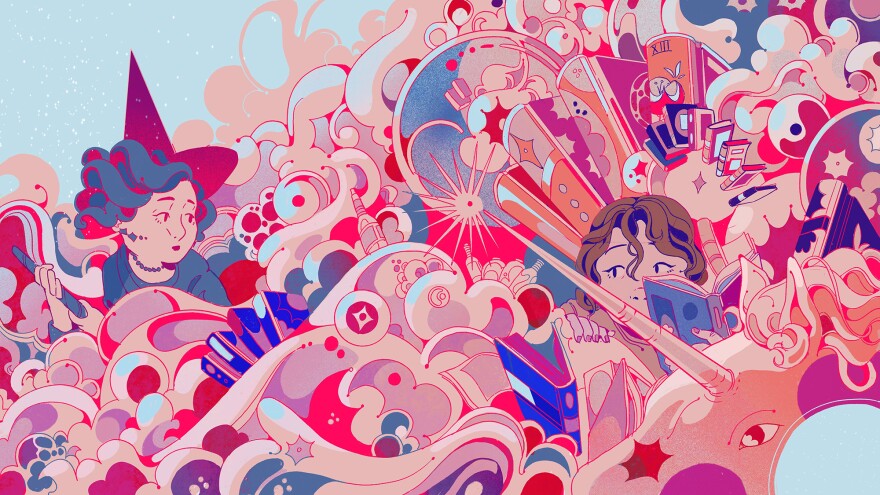The question at the heart of science fiction and fantasy is "what if?" What if gods were real, but you could kill them? What if humans finally made it out among the stars — only to discover we're the shabby newcomers in a grand galactic alliance? What if an asteroid destroyed the East Coast in 1952 and jump-started the space race years early?
This year's summer reader poll was also shaped by a series of "what ifs" — most importantly, what if, instead of looking at the entire history of the field the way we did in our 2011 poll, we focused only on what has happened in the decade since? These past 10 years have brought seismic change to science fiction and fantasy (sometimes literally, in the case of N.K. Jemisin's Broken Earth series), and we wanted to celebrate the world-shaking rush of new voices, new perspectives, new styles and new stories. And though we limited ourselves to 50 books this time around, the result is a list that's truly stellar — as poll judge Tochi Onyebuchi put it, "Alive."
As always, a pretty extensive decision-making process went into the list, involving our fabulous panel of expert judges — but we know you eager readers want to get right to the books. So if you're inclined, follow these links to find out how we built the list (and what, sadly, didn't make it this year). Otherwise, scroll on for the list!
We've broken it up into categories to help you find the reading experience you're looking for, and you can click on these links to go directly to each category:
Worlds To Get Lost In · Words To Get Lost In · Will Take You On A Journey · Will Mess With Your Head · Will Mess With Your Heart · Will Make You Feel Good
Worlds To Get Lost In
The Imperial Radch Trilogy

Breq is a human now — but once she was a starship. Once she was an AI with a vast and ancient metal body and troops of ancillaries, barely animate bodies that all carried her consciousness. Poll judge Ann Leckie has created a massive yet intricate interstellar empire where twisty galactic intrigues and multiple clashing cultures form a brilliant backdrop for the story of a starship learning to be a human being. Your humble editor got a copy of Ancillary Justice when it came out and promptly forced her entire family to read it.
The Dead Djinn Universe (series)

What a wonderful world P. Djélì Clarke has created here — an Arab world never colonized, where magic-powered trams glide through a cosmopolitan Cairo and where djinns make mischief among humans. Clarke's novella Ring Shout also showed up on our semifinalists list, and it was hard to decide between them, but ultimately our judges felt the Dead Djinn Universe offered more to explore. But you should still read Ring Shout, a wild ride of a read where gun-toting demon-hunters go up against Ku Klux Klan members who are actual, pointy-headed white demons. Go on, go get a copy! We'll wait.
The Age of Madness Trilogy

One of my pet peeves with fantasy novels is they sometimes don't allow for the progression of time and technology — but in Joe Abercrombie's Age of Madness series, the follow-up to his debut First Law trilogy, industrialization has come to the world of The Union, and it's brought no good in its wake. More than that — machines may be rising, but magic will not give way, and all over the world, those at the bottom of the heap are beginning to get really, really angry. This series works as a standalone — but you should also read the excellent First Law series (even though it's old enough to fall outside the scope of this list).
The Green Bone Saga

This sprawling saga of family, honor, blood and magical jade will suck you in from the very first page. Poll judge Fonda Lee's story works on every conceivable level, from minute but meaningful character beats to solid, elegantly conveyed world-building to political intrigue to big, overarching themes of clan, loyalty and identity. Plus, wow, the jade-powered martial arts sequences are as fine as anything the Shaw Brothers ever put on screen. "Reviewing books is my actual job," says fellow judge Amal El-Mohtar, "but I still have to fight my husband for the advance copies of Fonda's books, and we're both THIS CLOSE to learning actual martial arts to assist us in our dueling for dibs."
The Expanse (series)
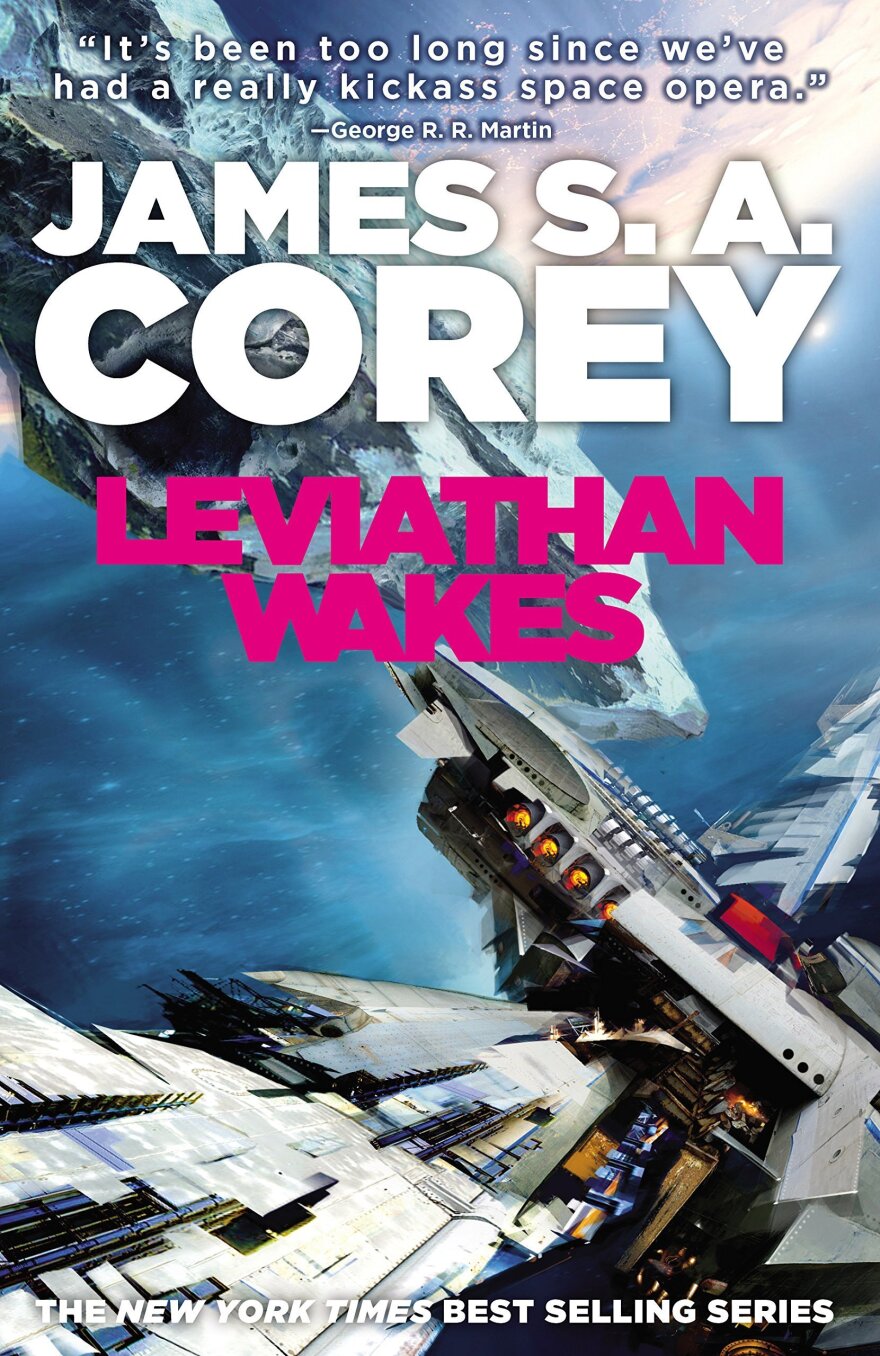
Yes, sure, you've seen the TV show (you HAVE, right? Right?) about the ragtag crew of spacers caught up in a three-way power struggle between Earth, Mars and the society that's developed on far-off asteroid belts. But there's much, much more to explore in the books — other planets, other characters, storylines and concepts that didn't make it to the screen. Often, when a book gets adapted for film or TV, there's a clear argument about which version is better. With The Expanse, we can confidently say you should watch and read. The only downside? Book-Avasarala doesn't show up until a few volumes in.
The Daevabad Trilogy

Nahri is a con woman (with a mysteriously real healing talent) scraping a living in the alleys of 18th century Cairo — until she accidentally summons some true magic and discovers her fate is bound to a legendary city named Daevabad, far from human civilization, home of djinns and bloody intrigues. Author S.A. Chakraborty converted to Islam as a teenager and after college began writing what she describes as "historical fanfiction" about medieval Islam; then characters appeared, inspired by people she met at her mosque. "A sly heroine capable of saving herself, a dashing hero who'd break for the noon prayer," she told an interviewer. "I wanted to write a story for us, about us, with the grandeur and magic of a summer blockbuster."
Teixcalaan (series)

The Aztecs meet the Byzantines in outer space in this intricately imagined story of diplomatic intrigue and fashionable poetic forms. Mahit Dzmare is an ambassador from a small space station clinging desperately to its independence in the face of the massive Teixcalaanli empire. But when she arrives in its glittering capital, her predecessor's dead, and she soon discovers she's been sabotaged herself. Luckily, it turns out she's incredibly good at her job, even without her guiding neural implant. "I'm a sucker for elegant worldbuilding that portrays all the finer nuances of society and culture in addition to the grandness of empire and the complexity of politics," says judge Fonda Lee. "Arkady Martine delivers all that in droves."
The Thessaly Trilogy

Apollo, spurned by Daphne, is trying to understand free will and consent by living as a mortal. Athena is trying to create a utopia by plucking men and women from all across history and dropping them on an island to live according to Plato's Republic. Will it all go according to plan? Not likely. "Brilliant, compelling, and frankly unputdownable," wrote poll judge Amal El-Mohtar, "this will do what your Intro to Philosophy courses probably couldn't: make you want to read The Republic."
Shades of Magic Trilogy

V.E. Schwab has created a world with four Londons lying atop one another: our own dull Grey, warm magic-suffused Red, tyrannical White, and dead, terrifying Black. Once, movement among them was easy, but now only a few have the ability — including our hero, Kell. So naturally, he's a smuggler, and the action kicks off when Grey London thief Lila steals a dangerous artifact from him, a stone that could upset the balance among the Londons. Rich world building, complex characters and really scary bad guys make Schwab's London a city — or cities — well worth spending time in.
The Divine Cities Trilogy

On the Continent, you must not, you cannot, talk about the gods — the gods are dead. Or are they? Robert Jackson Bennett's Divine Cities trilogy builds a fully, gloriously realized world where gods are the source of power, miracles and oppression, and gods can also be killed. But what happens next, when the gods are gone and the work of running the world is left to regular human men and women? What happens in that unsettled moment when divinity gives way to technology? This series spans a long timeline; the heroes of the first volume are old by the end. "And as ancient powers clash among gleaming, modern skyscrapers, those who have survived from the first page to these last have a heaviness about them," writes reviewer Jason Sheehan, "a sense that they have seen remarkable things, done deeds both heroic and terrible, and that they can see a far and final horizon in the distance, quickly approaching."
The Wormwood Trilogy

Part of a recent wave of work celebrating and centering Nigerian culture, this trilogy is set in a future where a fungal alien invader has swallowed big global cities, America has shut itself away and gone dark, and a new city, Rosewater, has grown up around a mysterious alien dome in rural Nigeria. It's a wild mashup of alien invasion, cyberpunk, Afro-futurism and even a touch of zombie horror. "I started reading Rosewater on vacation and quickly set it down until I got home, because Tade Thompson's work is no light beach read," says judge Fonda Lee. "His writing demands your full attention — and amply rewards it."
Black Sun (series)

Author Rebecca Roanhorse was tired of reading epic fantasy with quasi-European settings, so she decided to write her own. The result is Black Sun, set in a world influenced by pre-Columbian mythology and rich with storms, intrigue, giant bugs, mysterious sea people, ritual, myth and some very scary crows. (They hold grudges, did you know?) This is only Book 1 of a forthcoming series, but we felt it was so strong it deserved to be here, no matter where Roanhorse goes next.
Words To Get Lost In
Piranesi

Susanna Clarke at last returns to our shelves with this mind-bendingly glorious story — that's a bit hard to describe without spoiling. So we'll say it's about a mysterious man and the House that he dearly loves, a marvelous place full of changing light and surging tides, statues and corridors and crossings, birds and old bones and passing days and one persistent visitor who brings strangely familiar gifts. Clarke "limns a magic far more intrinsic than the kind commanded through spells," wrote reviewer Vikki Valentine, "a magic that is seemingly part of the fabric of the universe and as powerful as a cosmic engine — yet fragile nonetheless."
Circe

Imagine Circe, the fearsome witch of the Odyssey, as an awkward teenager, growing up lonely among scornful gods and falling for what we modern folks would call a f***boy, before coming into her own, using her exile on the island of Aiaia to hone her powers and build an independent life. Circe only shows up briefly in the Odyssey, but Madeline Miller gives her a lush, complex life in these pages. She has worked as a classics teacher, and as our reviewer Annalisa Quinn noted, Miller "extracts worlds of meaning from Homer's short phrases."
Mexican Gothic

A sharp young socialite in 1950s Mexico City travels to a creepy rural mansion to check on her cousin, who has fallen ill after marrying into a mysterious family of English landowners. What could possibly go wrong? Silvia Moreno-Garcia "makes you uneasy about invisible things by writing around them," said reviewer Jessica P. Wick. "Even when you think you know what lurks, the power to unsettle isn't diminished." Not to be too spoilery — but after reading this stylishly chilling novel, you'll never look at mushrooms the same way again.
The Paper Menagerie And Other Stories

"I taught Liu's 'The Man Who Ended History' in a graduate seminar one semester," says judge Tochi Onyebuchi, "and one of the toughest tasks I've ever faced in adulthood was crafting a lesson plan that went beyond me just going 'wtf wtf wtf wtf wtf' for the whole two hours. Some story collections are like those albums where the artist or record label just threw a bunch of songs together and said 'here,' and some collections arrive as a complete, cohesive, emotionally catholic whole. The Paper Menagerie is that."
Spinning Silver
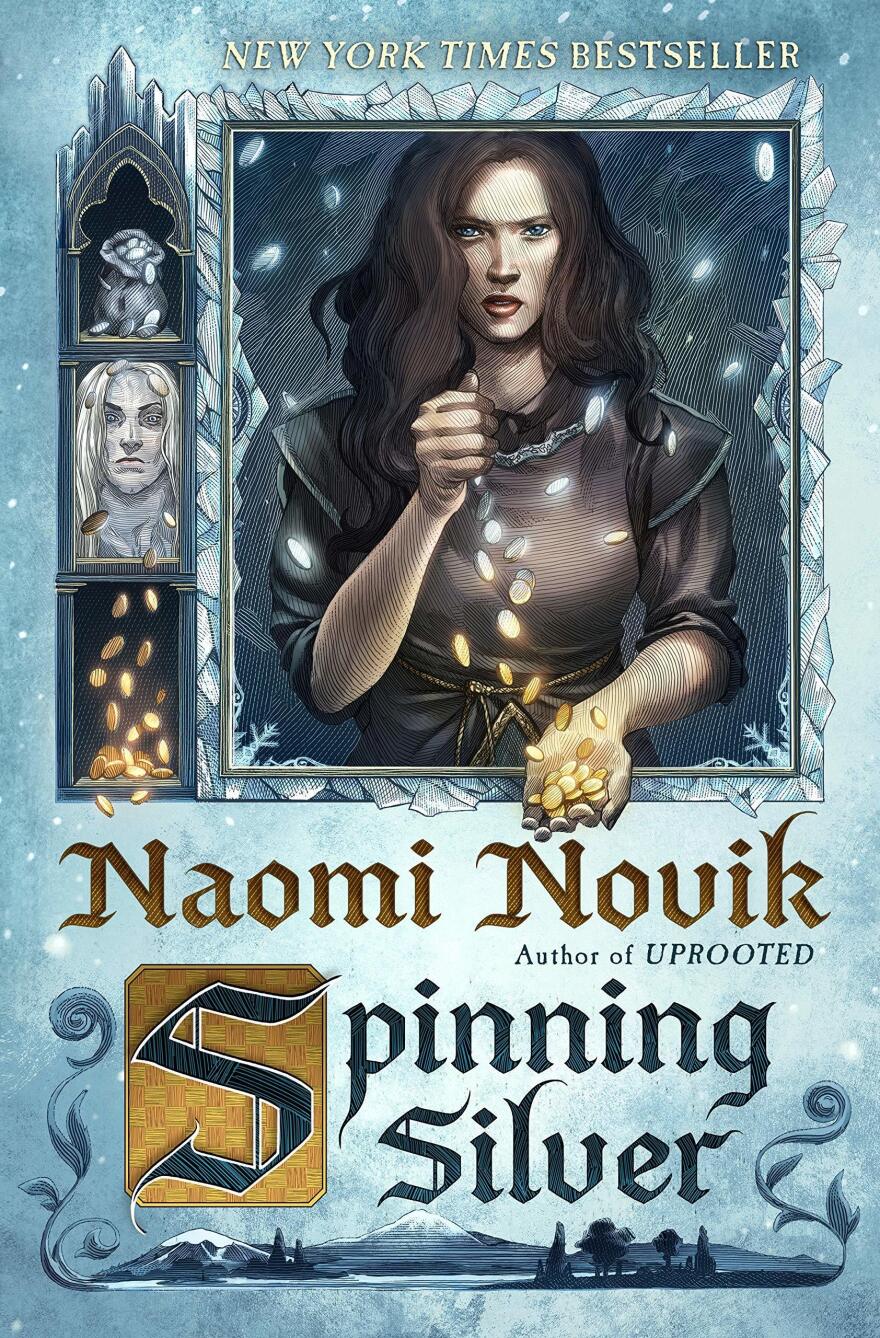
Judges had a hard time deciding between Spinning Silver and Uprooted, Novik's previous fairy tale retelling. Ultimately, we decided that this reclamation of "Rumpelstiltskin" has a chewier, more interesting project, with much to say about money, labor, debt and friendship, explored in unflinching yet tender ways. Judge Amal El-Mohtar reviewed Spinning Silver for NPR when it came out in 2018. "There are so many mathemagicians in this book, be they moneylenders turning silver into gold or knitters working to a pattern," she wrote at the time. "It's gold and silver all the way down."
Exhalation: Stories

"I often get the same feeling reading a Ted Chiang story as I did listening to a Prince song while he was still with us," says judge Tochi Onyebuchi. "What a glorious privilege it is that we get to share a universe with this genius!" This poll can be a discovery tool for editors and judges as much as audience, so hearing that, your humble editor went straight to the library and downloaded a copy of this collection.
Olondria (series)

In Olondria, you can smell the ocean wind coming off the page, soldiers ride birds, angels haunt humans, and written dreams are terribly dangerous. "Have you ever seen something so beautiful that you'd be content to just sit and watch the light around it change for a whole day because every passing moment reveals even more unbearable loveliness and transforms you in ways you can't articulate?" asks judge Amal El-Mohtar. "You will if you read these books."
Her Body And Other Parties: Stories

These eight stories dance across the borders of fairy tale, horror, erotica and urban legend, spinning the familiar, lived experiences of women into something rich and strange. As the title suggests, Machado focuses on the unruly female body and all of its pleasures and risks (there's one story that's just increasingly bizarre rewrites of Law & Order: SVU episodes). At one point, a character implies that kind of writing is "tiresome and regressive," too much about stereotypical crazy lesbians and madwomen in the attic. But as our critic Annalisa Quinn wrote, "Machado seems to answer: The world makes madwomen, and the least you can do is make sure the attic is your own."
The Buried Giant

Axl and Beatrice are an elderly couple, living in a fictional Britain just after Arthur's time, where everyone suffers from what they call "mist," a kind of amnesia that hits long-term memories. They believe, they vaguely remember that they once had a son, so they set out to find him — encountering an elderly Sir Gawain along the way, and long-forgotten connections to Arthur's court and the dark deeds the mist is hiding. Poll judge Ann Leckie loves Arthurian legends. What she does not love are authors who don't do them justice — but with The Buried Giant, she says, Kazuo Ishiguro gets it solidly right.
Radiance

Do you love space opera? Alternate history? Silent film? (OK, are you me?) Then you should pick up Catherynne M. Valente's Radiance, which mashes up all three in a gloriously surreal saga about spacefaring filmmakers in an alternate version of 1986, in which you might be able to go to Jupiter, but Thomas Edison's death grip on his patents means talkies are still a novelty. Yes, Space Opera did get more votes, but our judges genuinely felt that Radiance was the stronger book. Reviewing it in 2015, judge Amal El-Mohtar wrote, "Radiance is the sort of novel about which you have to speak for hours or hardly speak at all: either stop at 'it's magnificent' or roll on to talk about form, voice, ambition, originality, innovation for more thousands of words than are available to me here before even touching on the plot."
Will Take You On A Journey
The Changeling
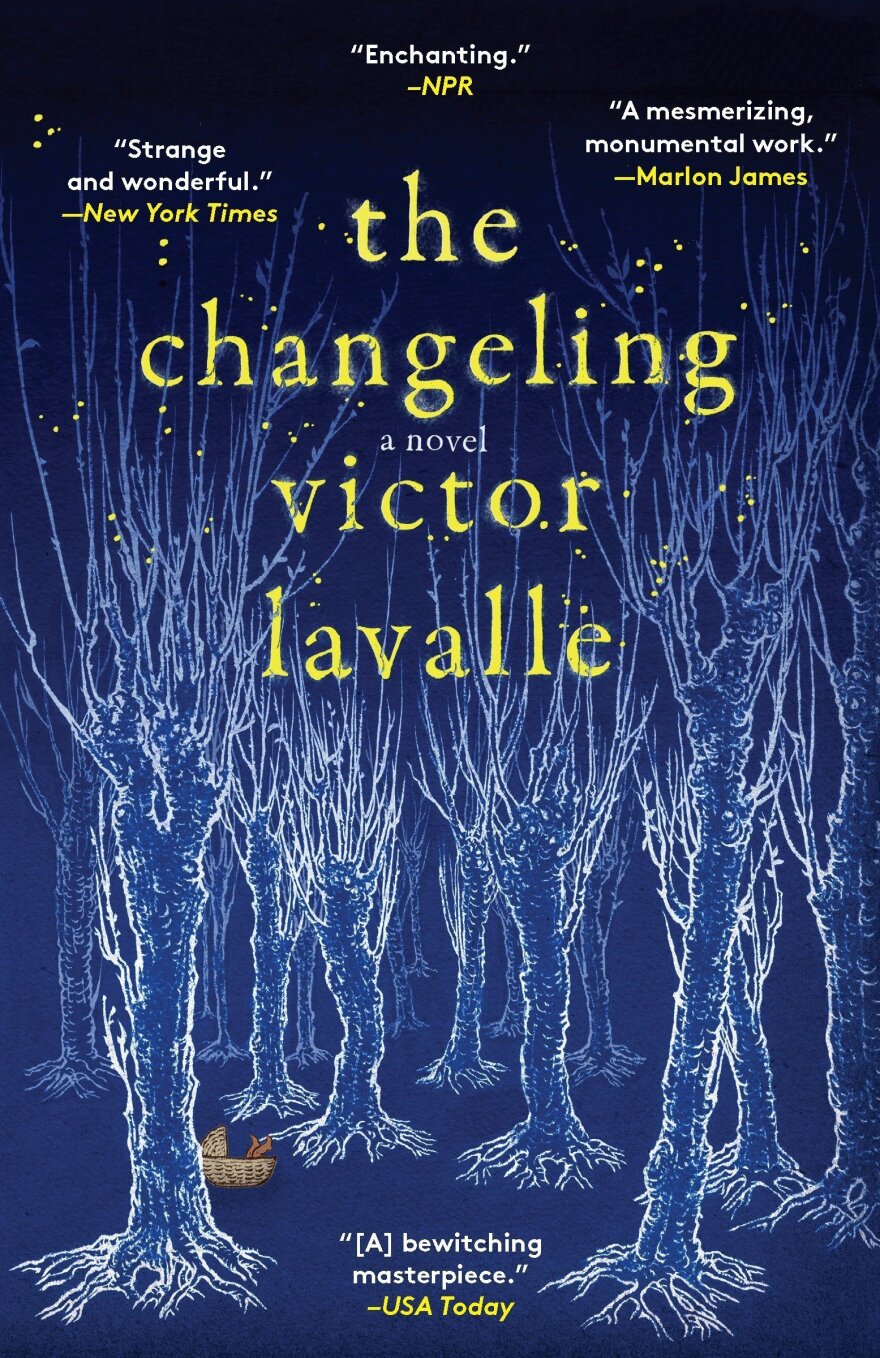
It's easy(ish) to summarize The Changeling: Rare book dealer Apollo Kagwa has a baby son with his wife, Emma, but she's been acting strange — and when she vanishes after doing something unspeakable, he sets out to find her. But his journey loops through a New York you've never seen before: mysterious islands and haunted forests, strange characters and shifting rhythms. The Changeling is a modern urban fairy tale with one toe over the line into horror, and wherever it goes, it will draw you along with it.
Wayfarers (series)
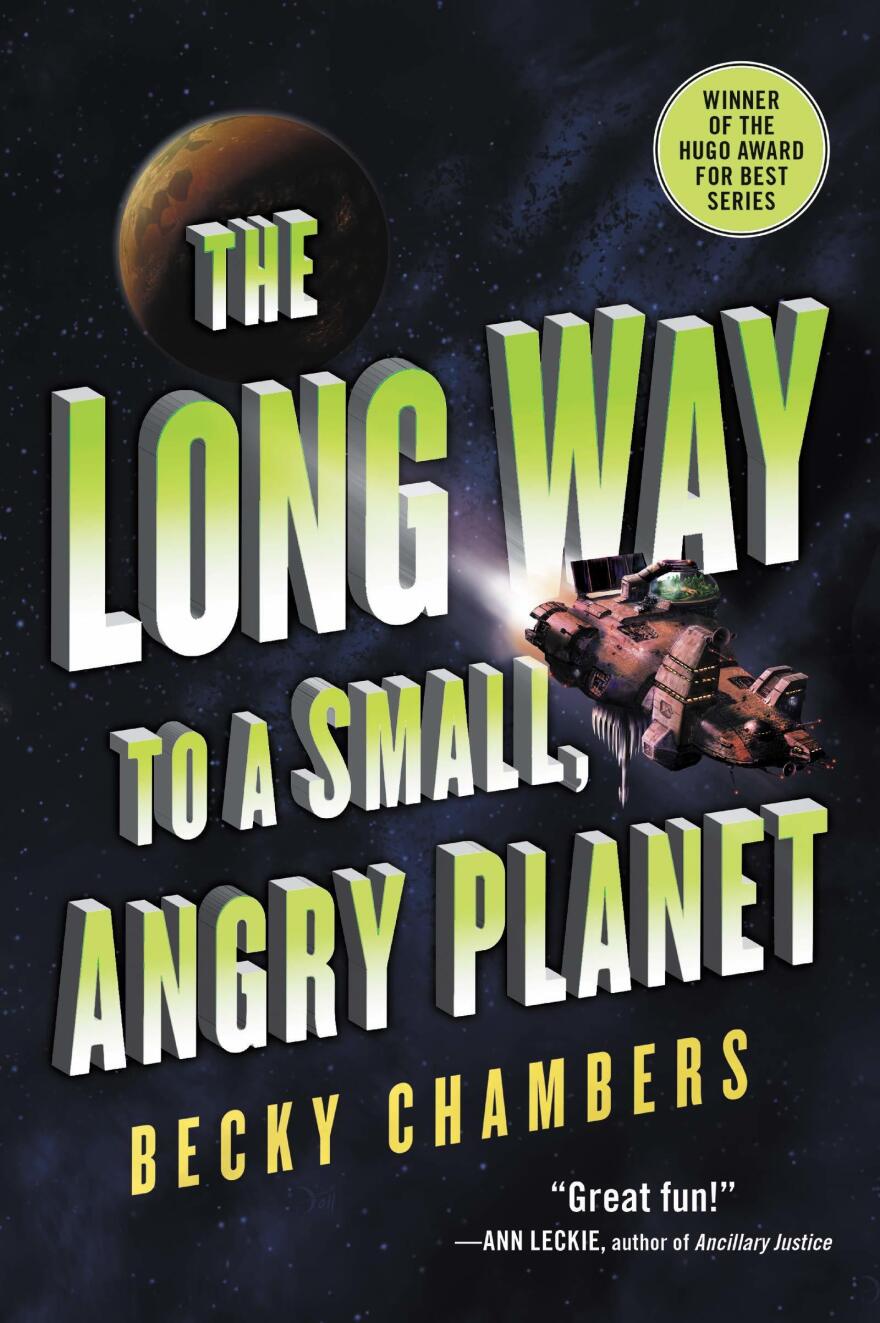
Becky Chambers writes aliens like no one else — in fact, humans are the backward newcomers in her generous, peaceful galactic vision. The Wayfarers books are only loosely linked: They all take place in the same universe, but apart from that you'll meet a new set of characters, a new culture and a new world (or an old world transformed). Cranky space pacifists, questing AIs, fugitives, gravediggers and fluffy, multi-limbed aliens who love pudding — the only flaw in this series is you'll wish you could spend more time with all of them.
Binti (series)

Binti is the first of her people, the Himba, to be offered a place at the legendary Oomza University, finest institution of learning in the galaxy — and as if leaving Earth to live among the stars weren't enough, Binti finds herself caught between warring human and alien factions. Over and over again throughout these novellas, Binti makes peace, bridges cultures, brings home with her even as she leaves and returns, changed by her experiences. Our judges agreed that the first two Binti stories are the strongest — but even if the third stumbles, as judge and critic Amal El-Mohtar wrote, "Perhaps the point is just having a Black girl with tentacles for hair possessing the power and freedom to float among Saturn's rings."
Lady Astronaut (series)
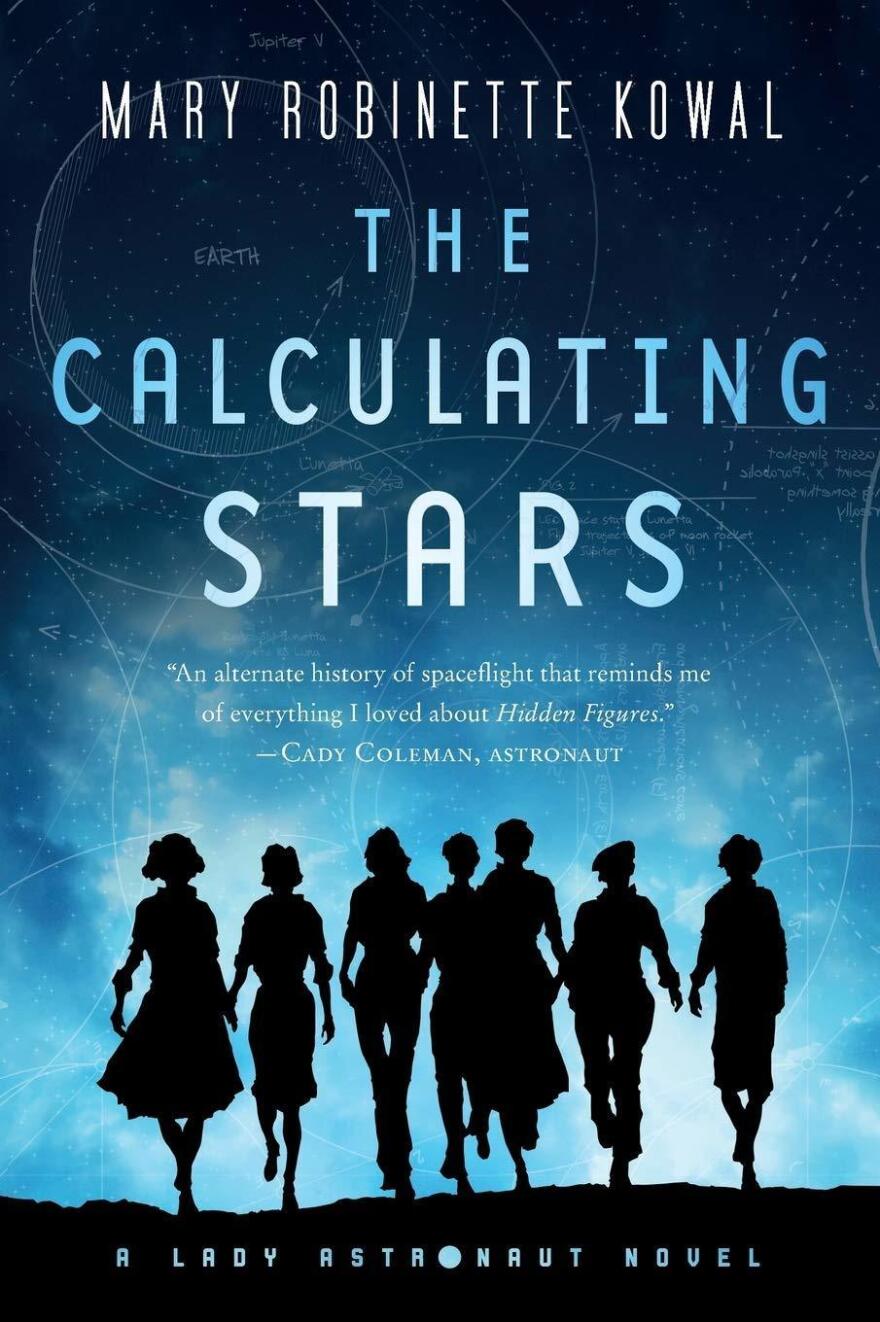
What would America's space program have looked like if, say, a gigantic asteroid had wiped out the East Coast in 1952 — and started a countdown to destruction for the rest of the world? We'd have had to get into space much sooner. And all the female pilots who served in World War II and were unceremoniously dumped back at home might have had another chance to fly. Mary Robinette Kowal's Hugo Award-winning series plays that out with Elma York, a former WASP pilot and future Lady Astronaut whose skill and determination help all of humanity escape the bonds of Earth. Adds judge Amal El-Mohtar: "Audiobook readers are in for a special treat here in that Kowal narrates the books herself, and if you've never had the pleasure of attending one of her readings, you get to experience her wonderful performance with bonus production values. It's especially cool given that the seed for the series was an audio-first short story."
Children of Time (duology)
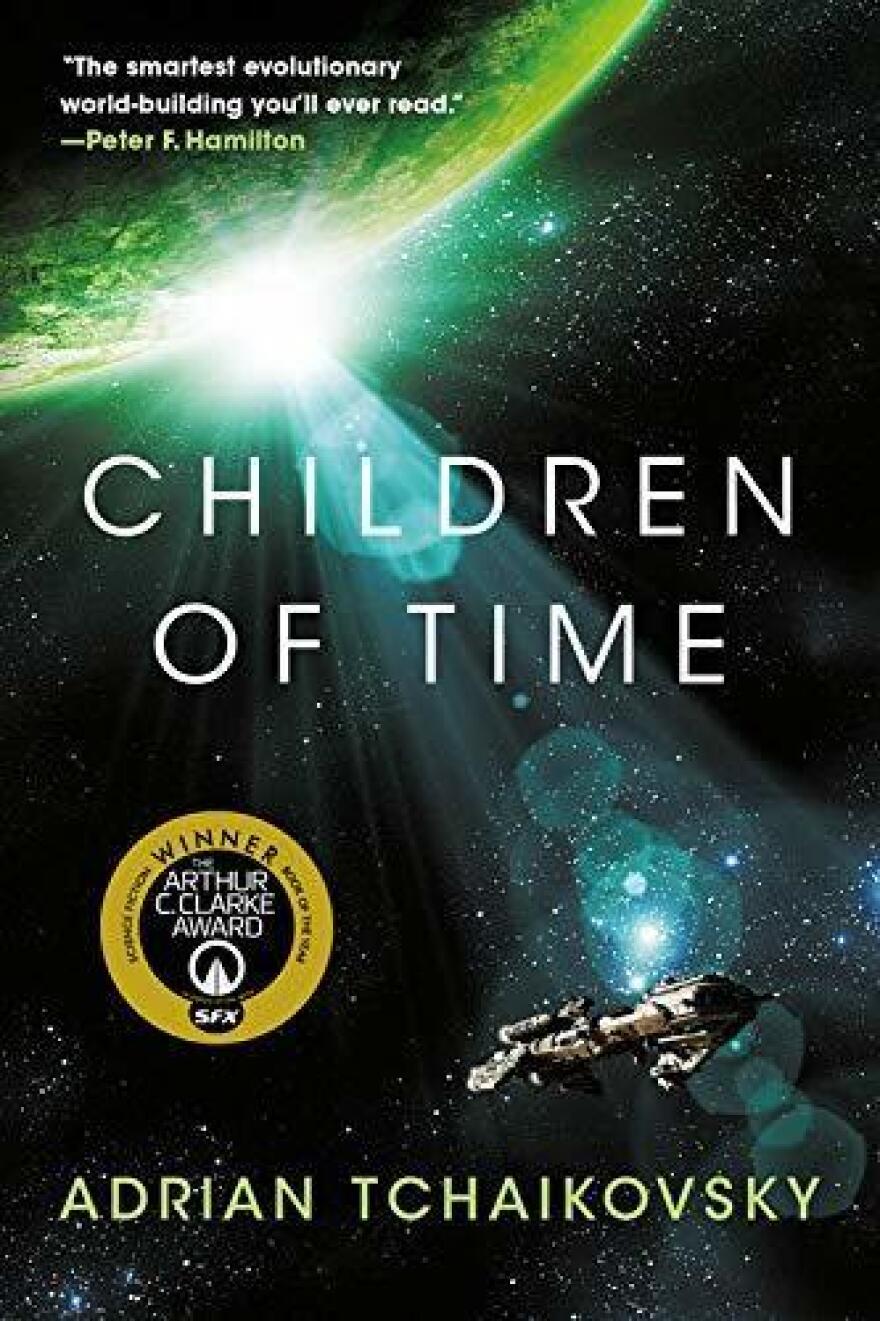
Far in the future, the dregs of humanity escape a ruined Earth and find what they think is a new hope deep in space — a planet that past spacefarers terraformed and left for them. But the evolutionary virus that was supposed to jump-start a cargo of monkeys, creating ready-made workers, instead latched on to ... something else, and in the intervening years, something terrible has arisen there. Poll judge Ann Leckie says she can't stand spiders (BIG SAME), but even so, she was adamant that the Children of Time books deserve their spot here.
Wayward Children (series)
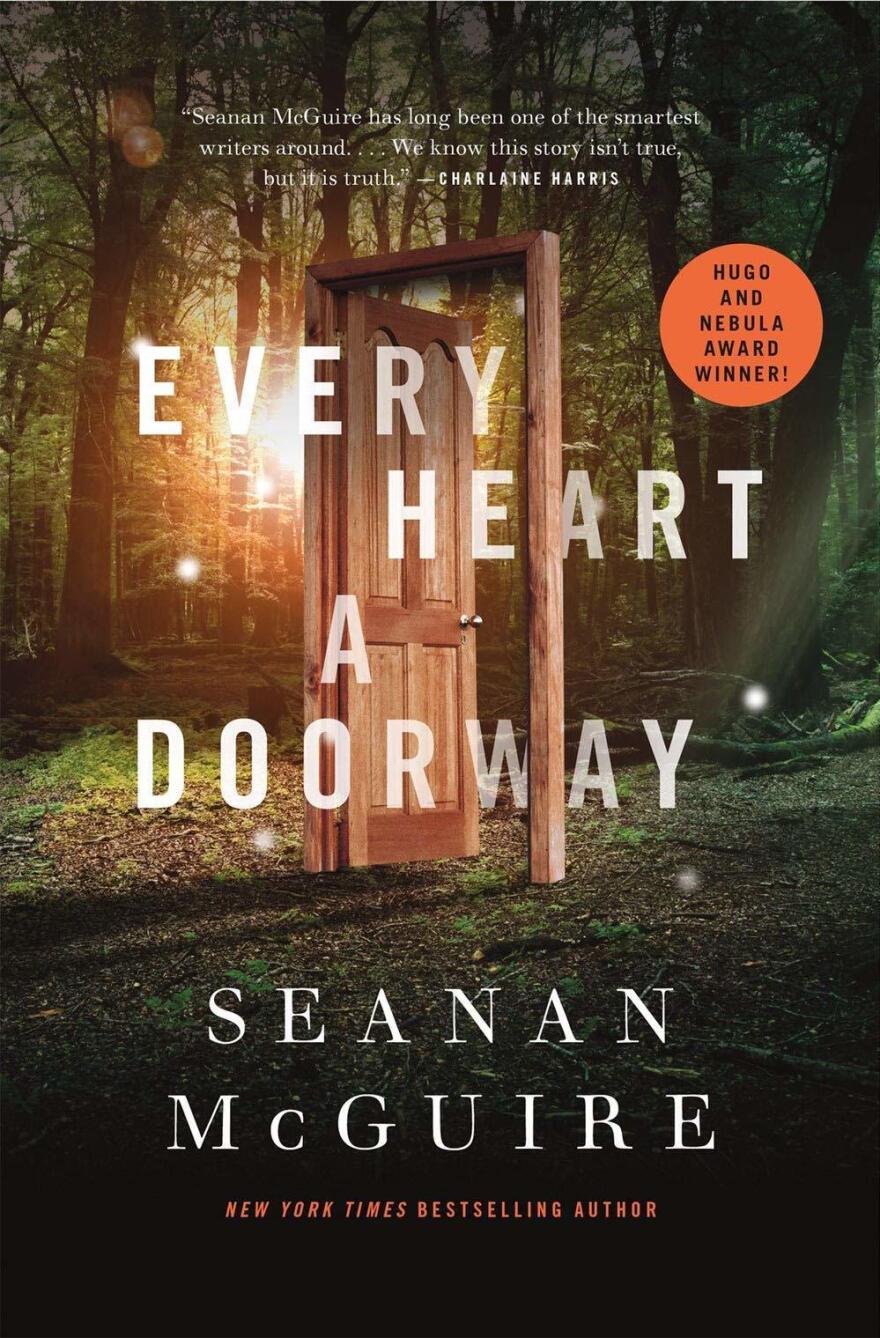
Everyone loves a good portal fantasy. Who hasn't looked in the back of the closet hoping, faintly, to see snow and a street lamp? In the Wayward Children series, Seanan McGuire reminds us that portals go both ways: What happens to those children who get booted back through the door into the real world, starry-eyed and scarred? Well, a lot of them end up at Eleanor West's School for Wayward Children. The prolific McGuire turned up on our semifinalists list A Lot. We had a hard time deciding between this and her killer stand-alone Middlegame, but the Wayward Children won the day with their shimmering mix of fairy tale, fantasy and emotional heft — not to mention body positivity and solid queer and trans representation. (As with a lot of the also-rans, though, you should really read Middlegame too.)
The Space Between Worlds
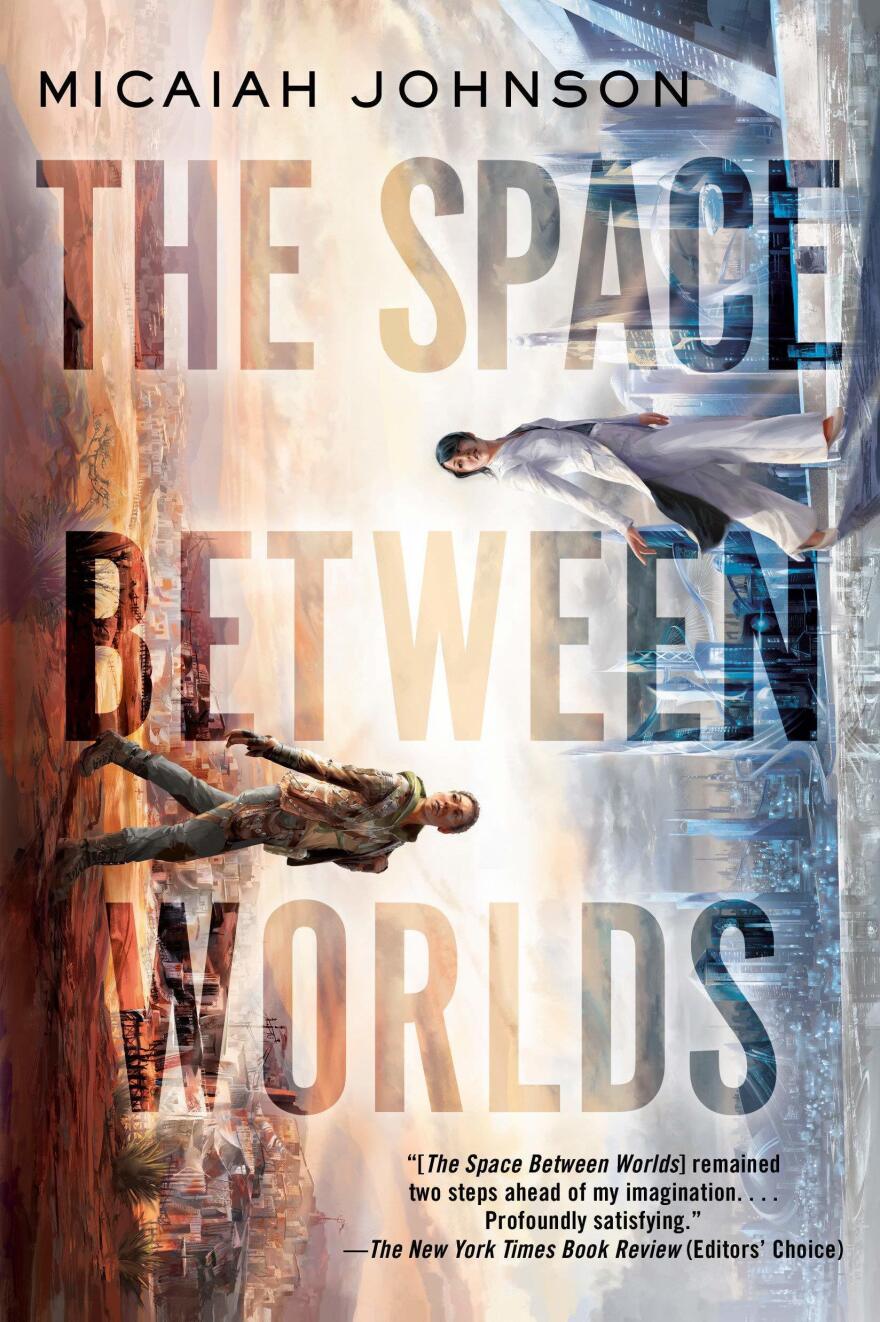
There are 382 parallel worlds in Micaiah Johnson's debut novel, and humanity can finally travel between them — but there's a deadly catch. You can visit only a world where the parallel version of you is already dead. And that makes Cara — whose marginal wastelands existence means only a few versions of her are left — valuable to the high and mighty of her own Earth. "They needed trash people," Cara says, to gather information from other worlds. But her existence, already precarious, is threatened when a powerful scientist figures out how to grab that information remotely. "At a time when I was really struggling with the cognitive demands of reading anything for work or pleasure, this book flooded me with oxygen and lit me on fire," says judge Amal El-Mohtar. "I can't say for certain that it enabled me to read again, but in its wake, I could."
Will Mess With Your Head
Black Leopard, Red Wolf
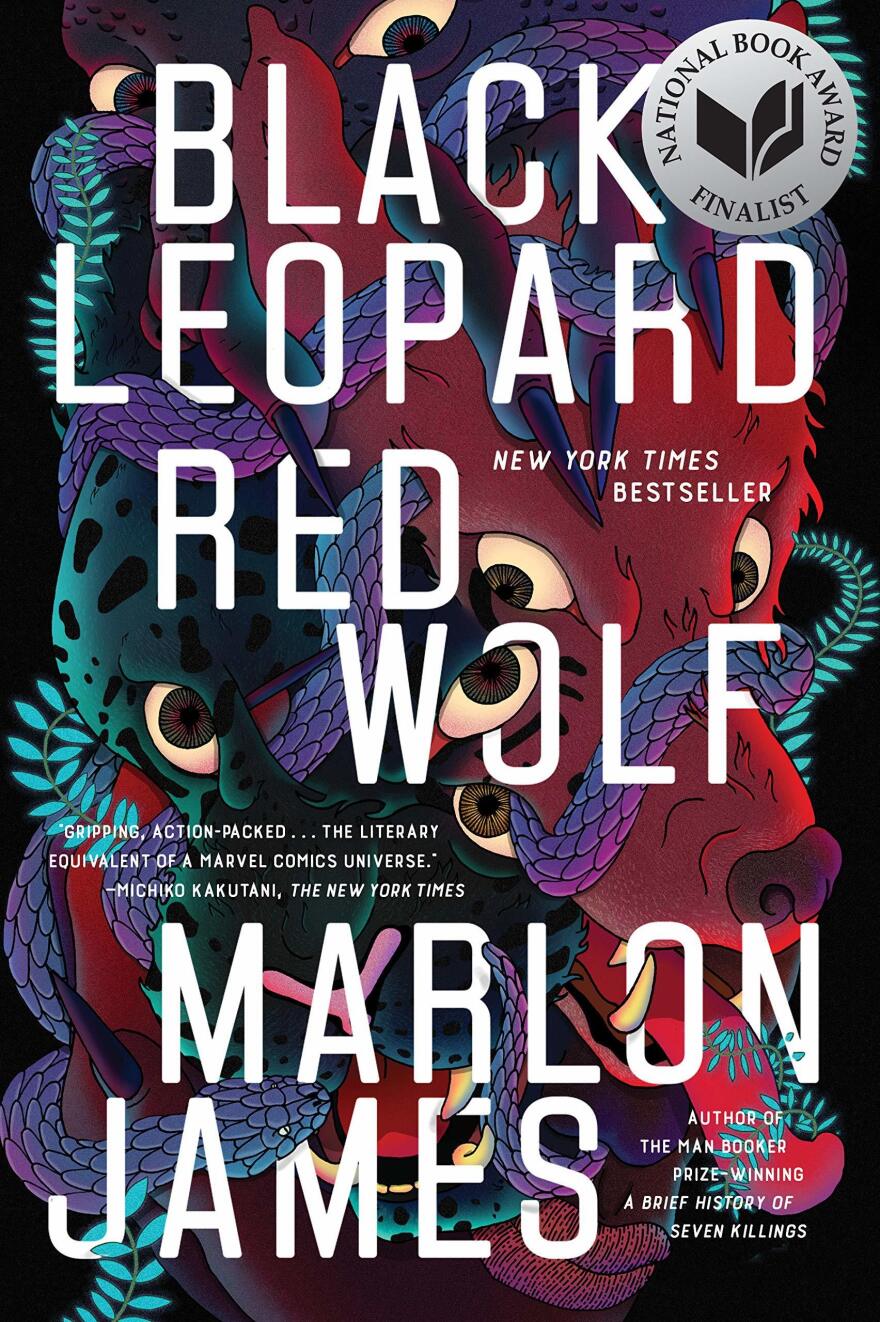
Poll judge Amal El-Mohtar once described Black Leopard, Red Wolf as "like being slowly eaten by a bear." Fellow judge Tochi Onyebuchi chimes in: "Black Leopard, Red Wolf is a Slipknot album of a book. In all the best ways." Set in a dazzling, dangerous fantasy Africa, it is — at least on the surface — about a man named Tracker, in prison when we meet him and telling his life story to an inquisitor. Beyond that, it's fairly indescribable, full of roof-crawling demons, dust-cloud assassins, blood and (fair warning) sexual violence. A gnarly book, a difficult book, sometimes actively hostile to the reader — yet necessary, and stunning.
Southern Reach (series)
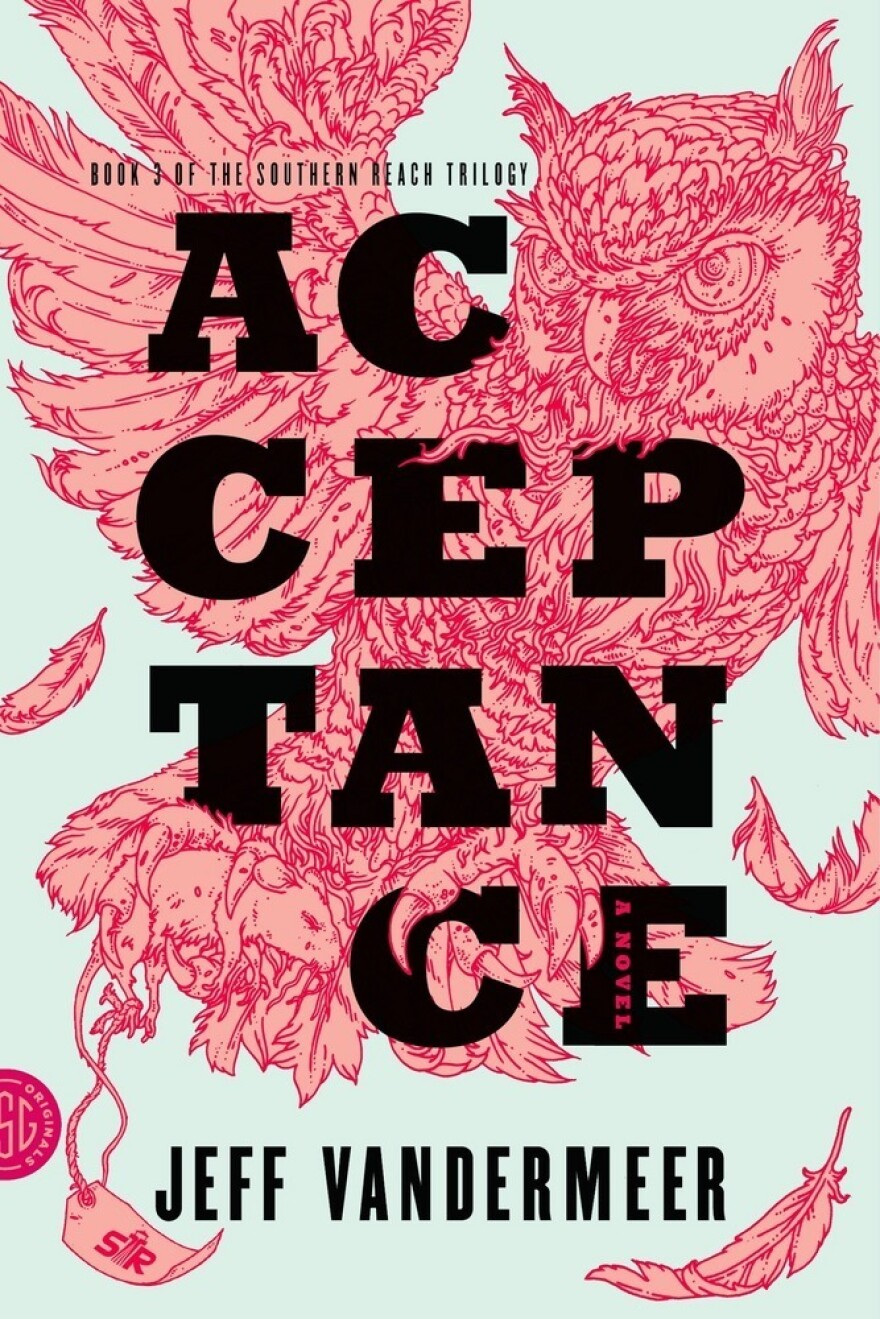
The Southern Reach books are, at least on the surface, a simple tale of a world gone wrong, of a mysterious "Area X" and the expeditions that have suffered and died trying to map it — and the strange government agency that keeps sending them in. But there's a lot seething under that surface: monsters, hauntings, a slowly building sense of wrong and terror that will twist your brain around sideways. "If the guys who wrote Lost had brought H.P. Lovecraft into the room as a script doctor in the first season," our critic Jason Sheehan wrote, "the Southern Reach trilogy is what they would've come up with."
The Echo Wife

Part sci-fi cautionary tale, part murder mystery, The Echo Wife is a twisty treat. At its center are a famed genetic researcher and her duplicitous husband, who uses her breakthrough technology to clone himself a sweeter, more compliant version of his wife before ending up dead. "As expertly constructed as a Patek Philippe watch," says poll judge Tochi Onyebuchi. "Seamlessly blends domestic thriller and science fiction," adds fellow judge Fonda Lee. "This book is going to haunt my thoughts for a long time."
The Locked Tomb (series)
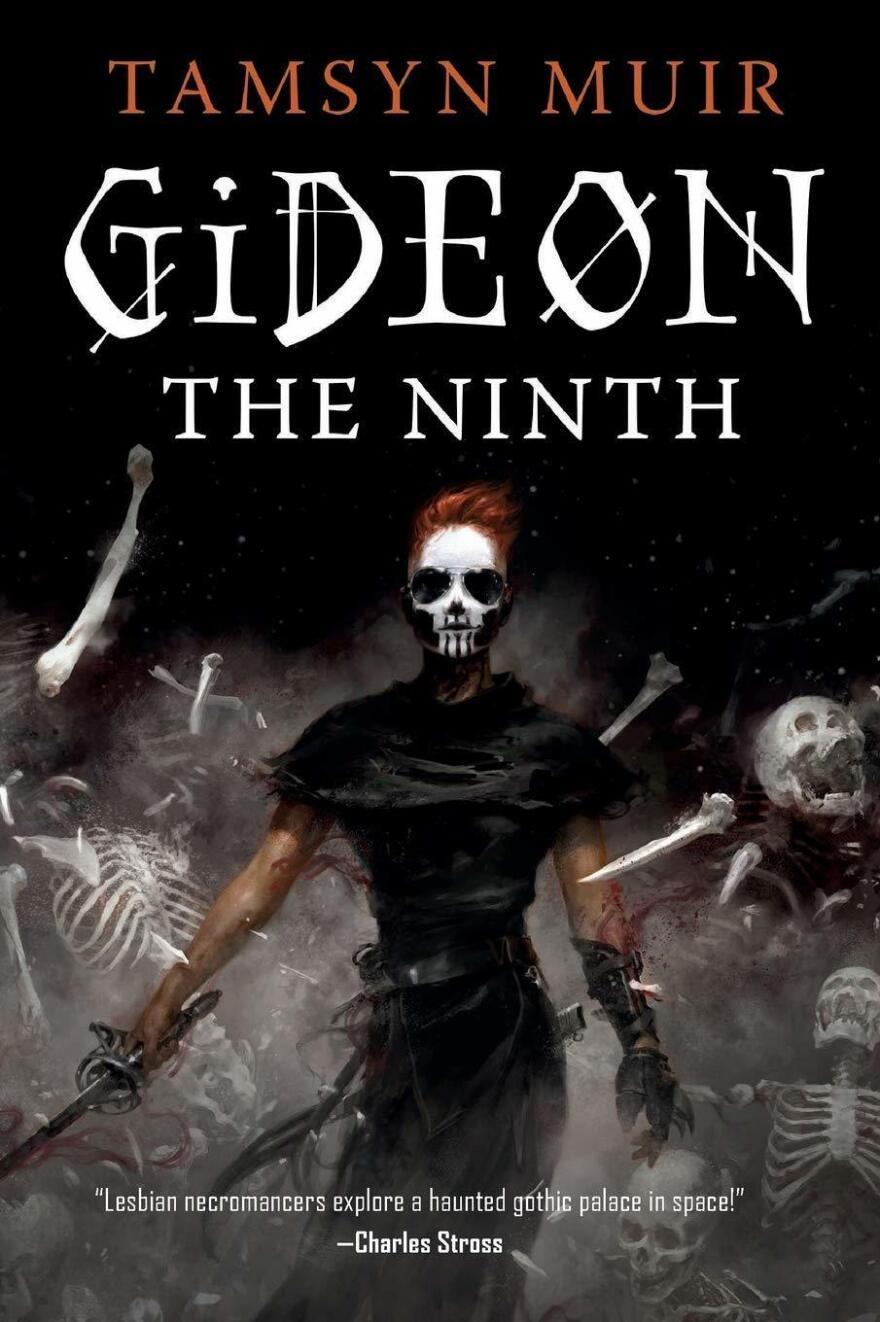
This series is often described as "lesbian necromancers in space," but trust us, it's so much more than that. Wildly inventive, gruesome, emotional, twisty and funny as hell, the Locked Tomb books are like nothing you've ever read before. And we defy you to read them and not give serious consideration to corpse paint and mirror shades as a workable fashion statement. There are only two books out now, of a planned four-book series, but Gideon the Ninth alone is enough to earn Tamsyn Muir a place on this list: "Too funny to be horror, too gooey to be science fiction, has too many spaceships and autodoors to be fantasy, and has far more bloody dismemberings than your average parlor romance," says critic Jason Sheehan. "It is altogether its own thing."
Remembrance of Earth's Past (series)

Liu Cixin became the first author from Asia to win a Hugo Award for Best Novel, for The Three-Body Problem, the first volume in this series about one of the oldest questions in science fiction: What will happen when we meet aliens? Liu is writing the hardest of hard sci-fi here, full of brain-twisting passages about quantum mechanics and artificial intelligence (if you didn't actually know what the three-body problem was, you will now), grafted onto the backbone of a high-stakes political thriller. Poll judge Tochi Onyebuchi says, "These books divided me by zero. And, yes, that is a compliment."
Machineries of Empire (series)

In the Hexarchate, numbers are power: This interstellar empire draws its strength from rigidly enforced adherence to the imperial calendar, a system of numbers that can alter reality. But now, a "calendrical rot" is eating away at that structure, and it's up to a mathematically talented young soldier — and the ghost of an infamous traitor — to try to repair the rot while a war blazes across the stars around them. "Ninefox Gambit is a book with math in its heart, but also one which understands that even numbers can lie," our critic Jason Sheehan wrote. "That it's what you see in the numbers that matters most."
Will Mess With Your Heart
The Broken Earth (series)
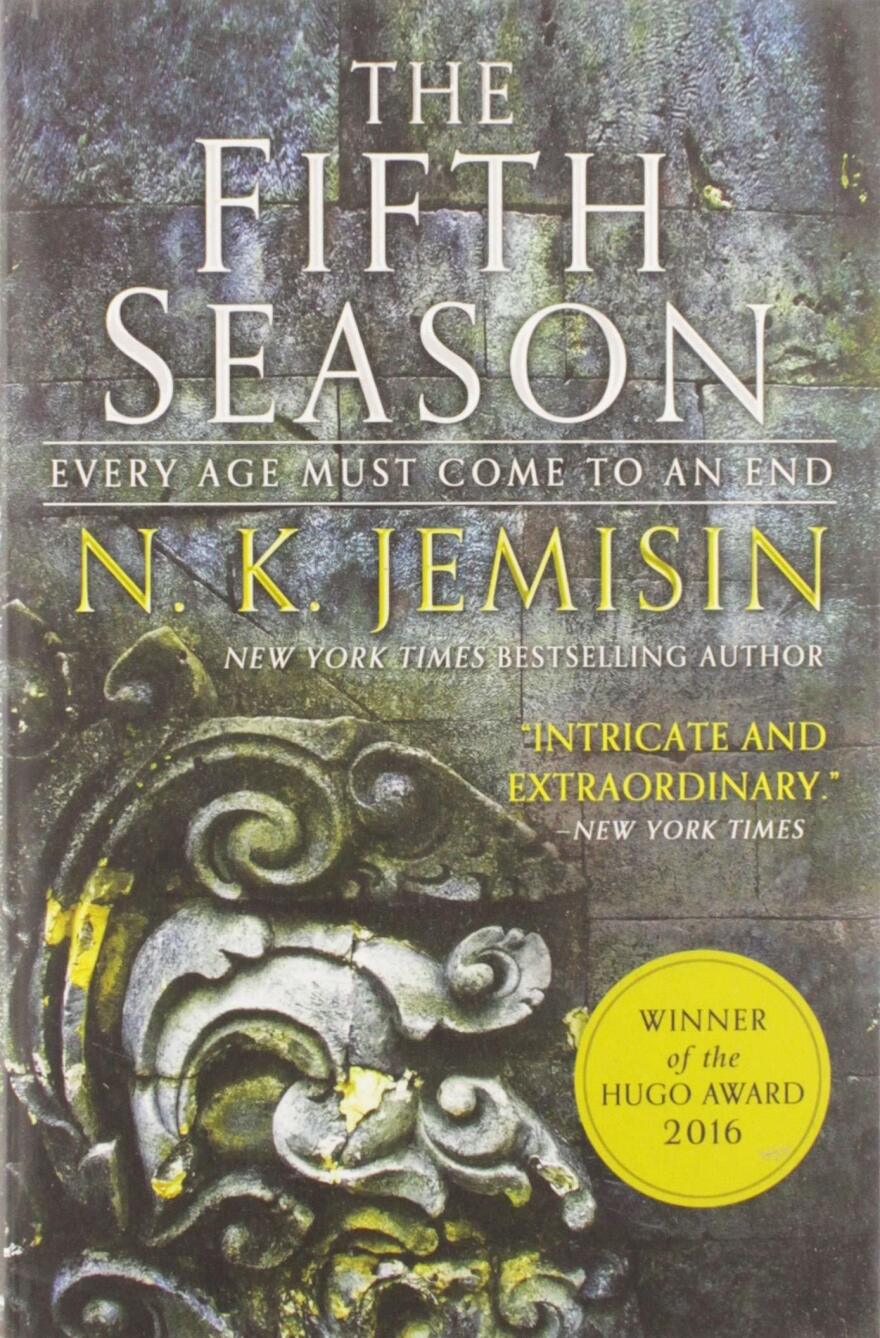
In the world of the Stillness, geological convulsions cause upheavals that can last for centuries — and only the orogenes, despised yet essential to the status quo — can control them. N.K. Jemisin deservedly won three back-to-back Hugo awards for these books, which use magnificent world building and lapidary prose to smack you in the face about your own complicity in systems of oppression. "Jemisin is the first — and so far only — person ever to have won a Hugo Award for Best Novel for every single book in a series. These books upheaved the terrain of epic fantasy as surely and completely as Fifth Seasons transform the geography of the Stillness," says poll judge Amal El-Mohtar.
Station Eleven
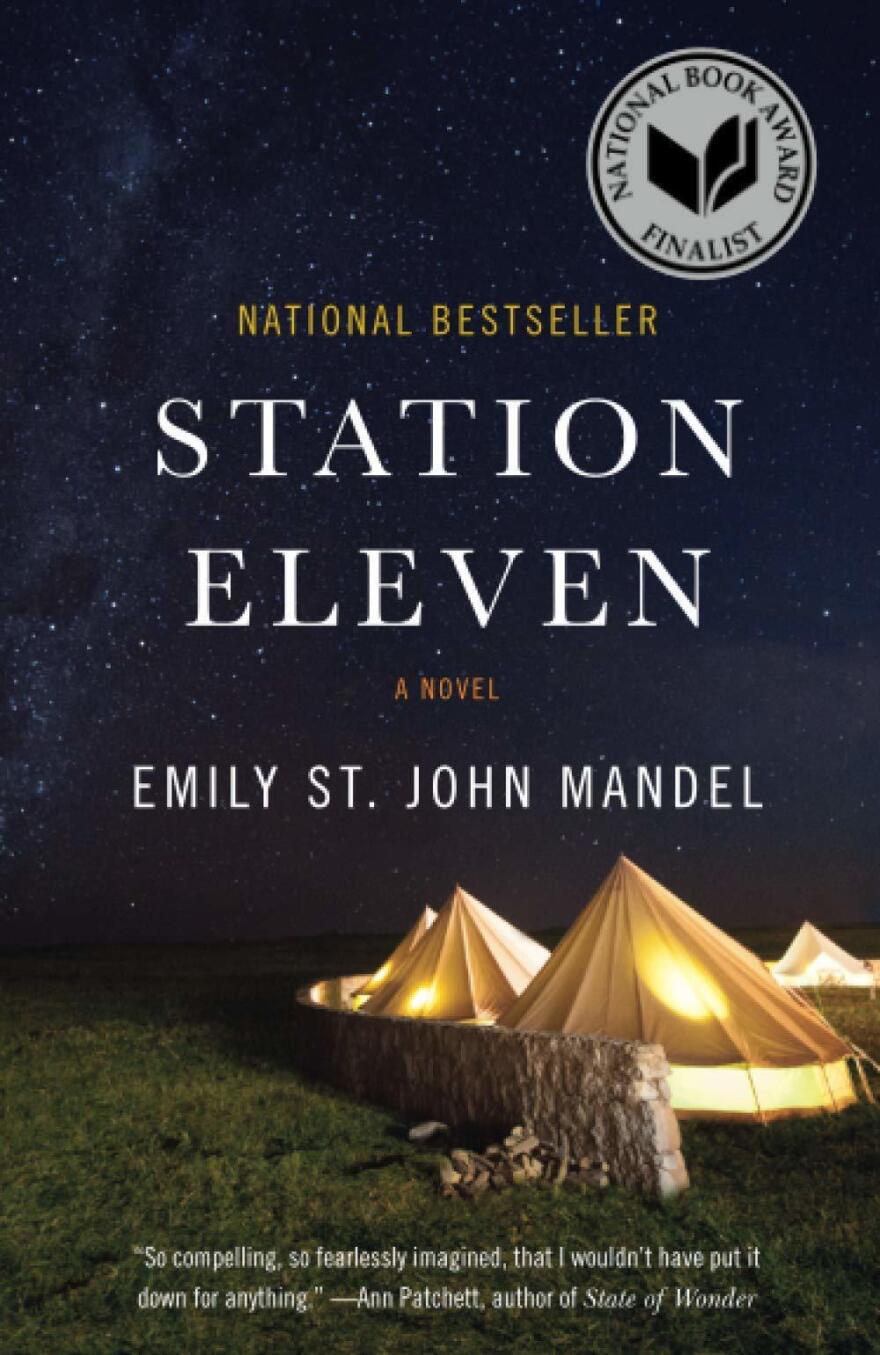
Author Emily St. John Mandel went on Twitter in 2020 and advised people not to read Station Eleven, not in the midst of the pandemic. But we beg to disagree. A story in which art (and particularly Shakespeare) helps humanity come back to itself after a pandemic wipes out the world as we know it might be just the thing we need. "Survival is insufficient," say Mandel's traveling players (a line she says she lifted from Star Trek), and that's a solid motto any time.
This Is How You Lose the Time War
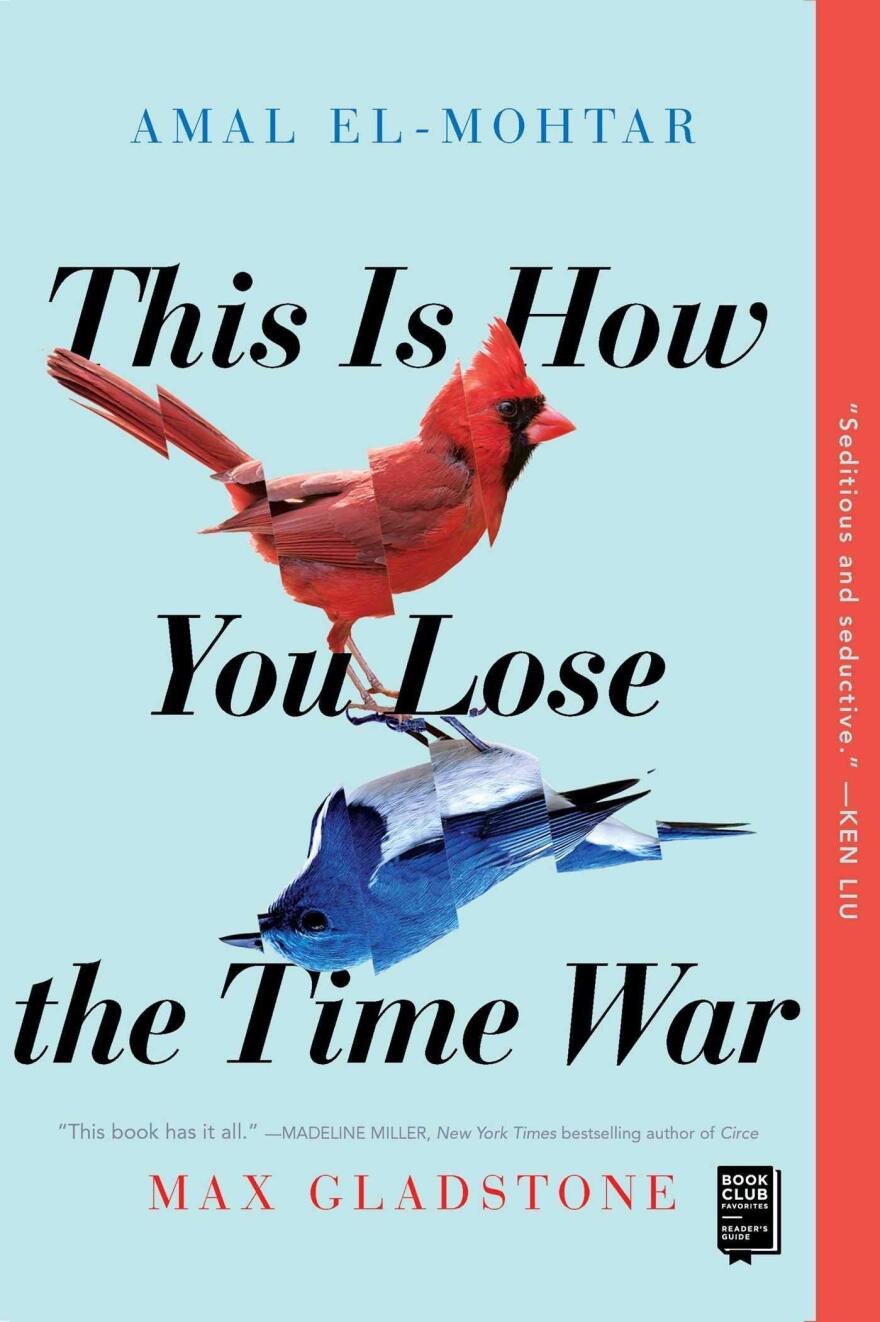
Enemies-to-lovers is a classic romance novel trope, and it's rarely been done with as much strange beauty as poll judge Amal El-Mohtar and co-author Max Gladstone pull off in this tale of Red and Blue, two agents on opposite sides of a war that's sprawled across time and space. "Most books I read are objects of study. And more often than not, I can figure out how the prose happened, how the character arcs are constructed, the story's architecture," says judge Tochi Onyebuchi. "But then along comes a thing so dazzling you can't help but stare at and ask 'how.' Amal and Max wrote a cheat code of a book. They unlocked all the power-ups, caught all the Chaos Emeralds, mastered all the jutsus, and honestly, I'd say it's downright unfair how much they flexed on us with Time War, except I'm so damn grateful they gave it to us in the first place." (As we noted above, having Time War on the list meant that Max Gladstone couldn't make a second appearance for his outstanding solo work with the Craft Sequence. But you should absolutely read those, too.)
The Poppy War Trilogy
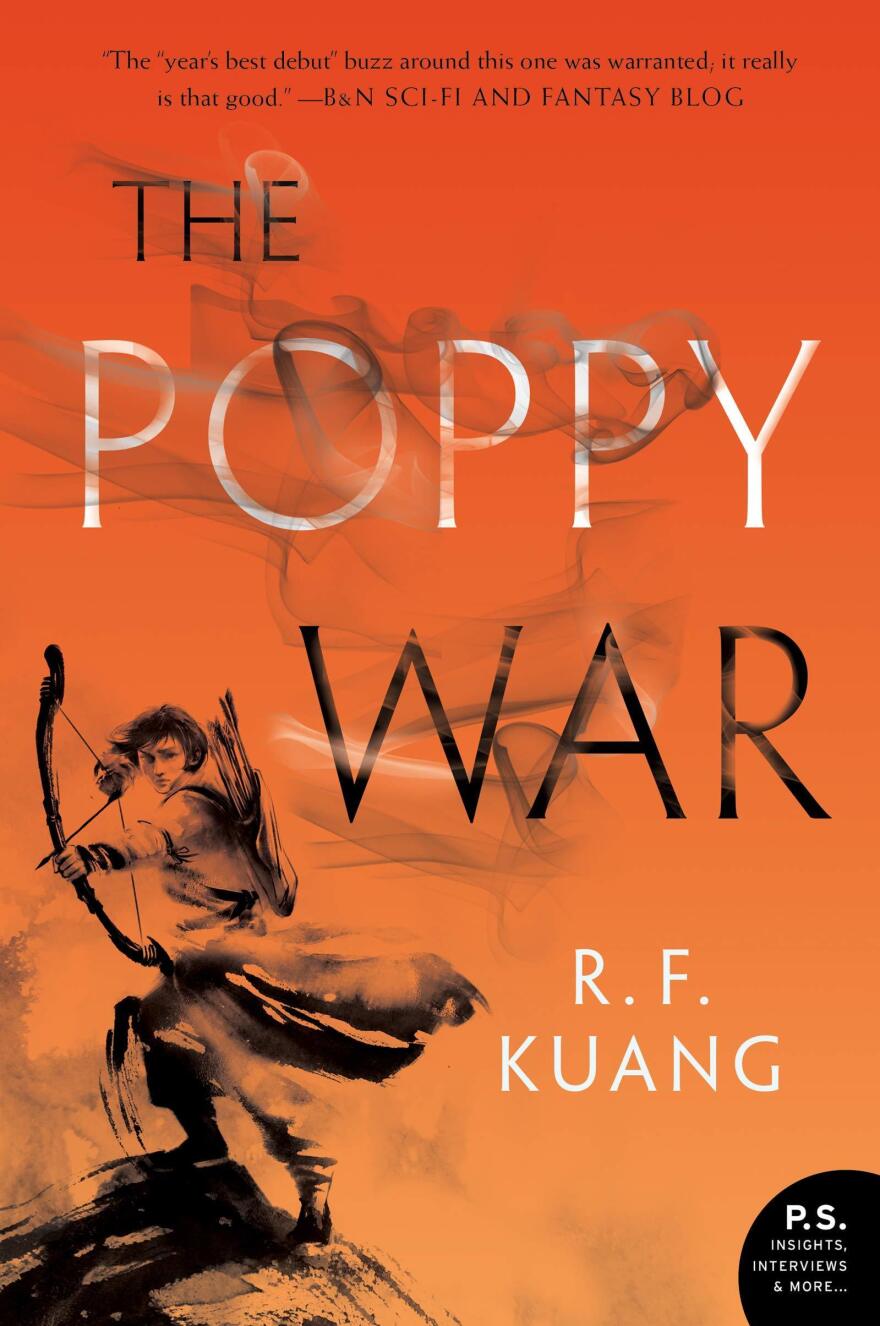
What if Mao Zedong were a teenage girl? That's how author R.F. Kuang describes the central question in her Poppy War series. Fiery, ruthless war orphan Fang Runin grows up, attends an elite military academy, develops fire magic and wins a war — but finds herself becoming the kind of monster she once fought against. Kuang has turned her own rage and anger at historical atrocities into a gripping, award-winning story that will drag you along with it, all the way to the end. "If this were football, Kuang might be under investigation for PEDs," jokes judge Tochi Onyebuchi, referring to performance-enhancing drugs. "But, no, she's really just that good."
The Masquerade (series)
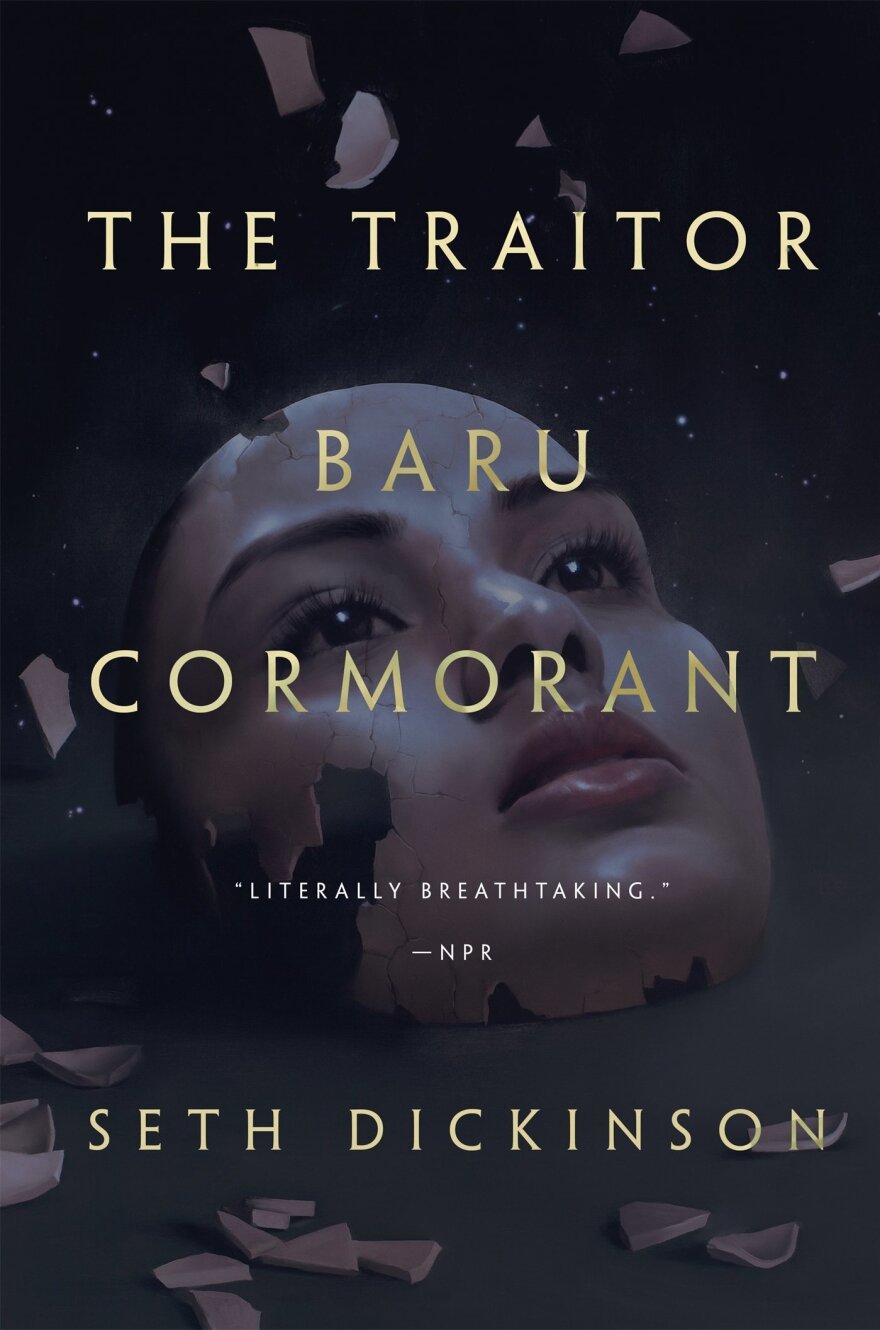
Baru Cormorant was born to a free-living, free-loving nation, but all that changed when the repressive Empire of Masks swept in, tearing apart her family, yet singling her out for advancement through its new school system. Baru decides the only way to free her people is to claw her way up the ranks of Empire — but she risks becoming the monster she's fighting against. "I've loved every volume of this more than the one before it, and the first one was devastatingly strong," says judge Amal El-Mohtar — who said of that first volume, "This book is a tar pit, and I mean that as a compliment."
An Unkindness of Ghosts
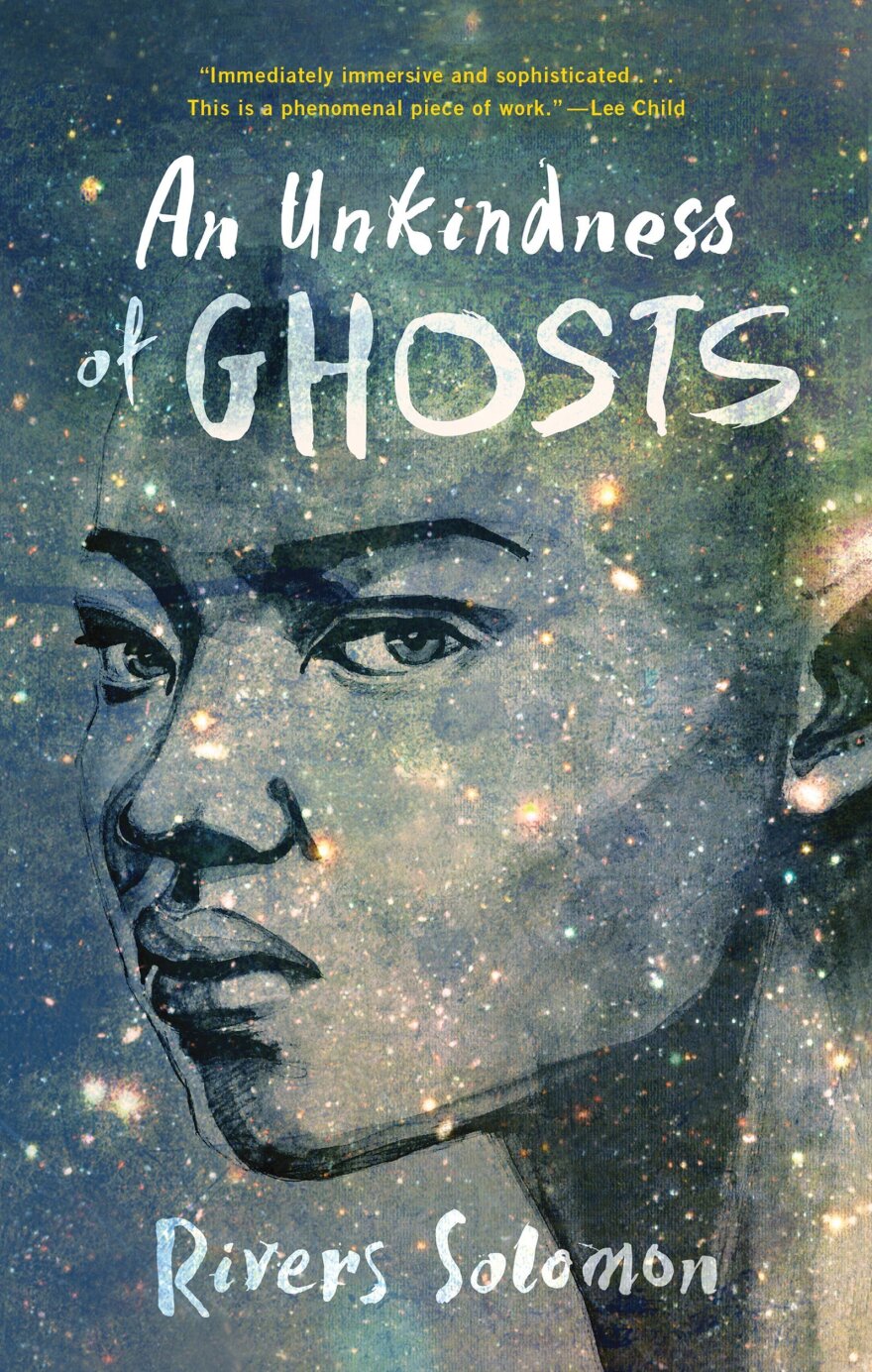
The Matilda is a generation ship, a vast repository of human life among the stars, cruelly organized like an antebellum plantation: Black and brown people on the lower decks, working under vicious overseers to provide the white upper-deck passengers with comfortable lives. Aster, an orphaned outsider, uses her late mother's medical knowledge to bring healing where she can and to solve the mystery of Matilda's failing power source. Poll judge Amal El-Mohtar originally reviewed An Unkindness of Ghosts for us, writing "What Solomon achieves with this debut — the sharpness, the depth, the precision — puts me in mind of a syringe full of stars."
The Bird King

G. Willow Wilson's beautiful novel, set during the last days of Muslim Granada, follows a royal concubine who yearns for freedom and the queer mapmaker who's her best friend. "It is really devastating to a critic to find that the only truly accurate way of describing an author's prose is the word 'luminous,' but here we are," says judge Amal El-Mohtar. "This book is luminous. It is full of light, in searing mirror-flashes and warm candleflame flickers and dappled twists of heart-breaking insight into empire, war and religion."
American War
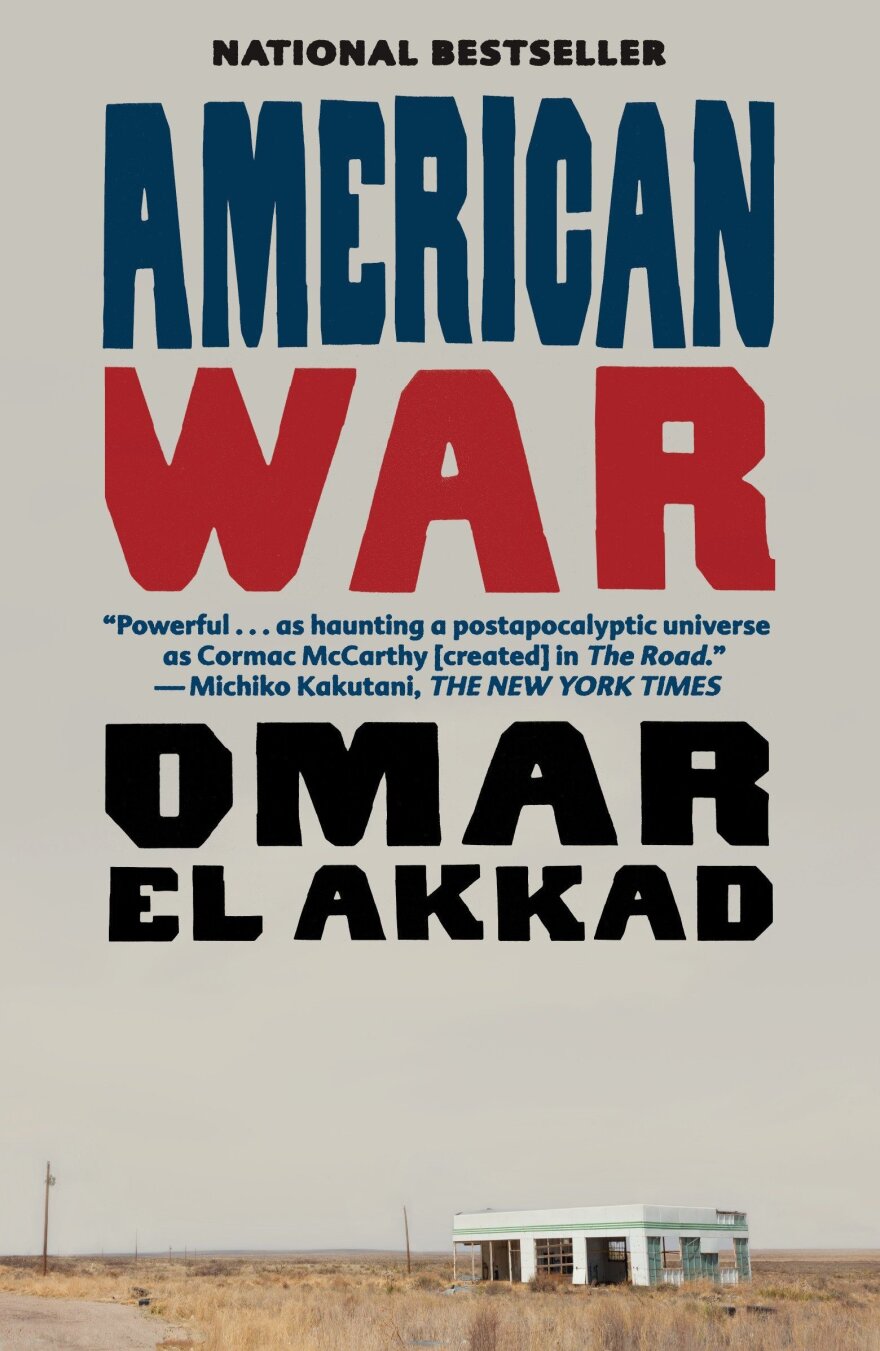
This was judge Tochi Onyebuchi's personal pick — a devastating portrait of a post-climate-apocalypse, post-Second Civil War America that's chosen to use its most terrifying and oppressive policies against its own people. "It despairs me how careless we are with the word 'prescient' these days, but when I finished American War, I truly felt that I'd glimpsed our future," Onyebuchi says. "Charred and scarred and shot through with shards of hope."
Riot Baby

Poll judge Tochi Onyebuchi centers this story on the kind of person who's more often a statistic, rarely a fully rounded character: Kevin, who's young, Black and in prison. Born amid the upheaval around the Rodney King verdict, Kevin is hemmed in by structural and individual racism at every turn; meanwhile, his sister Ella has developed mysterious, frightening powers — but she still can't do the one thing she truly wants to do, which is to rescue her brother. This slim novella packs a punch with all the weight of history behind it; fellow judge Amal El-Mohtar says, "I've said it in reviews and I'll say it again here: This book reads like hot diamonds, as searing as it is precise."
On Fragile Waves
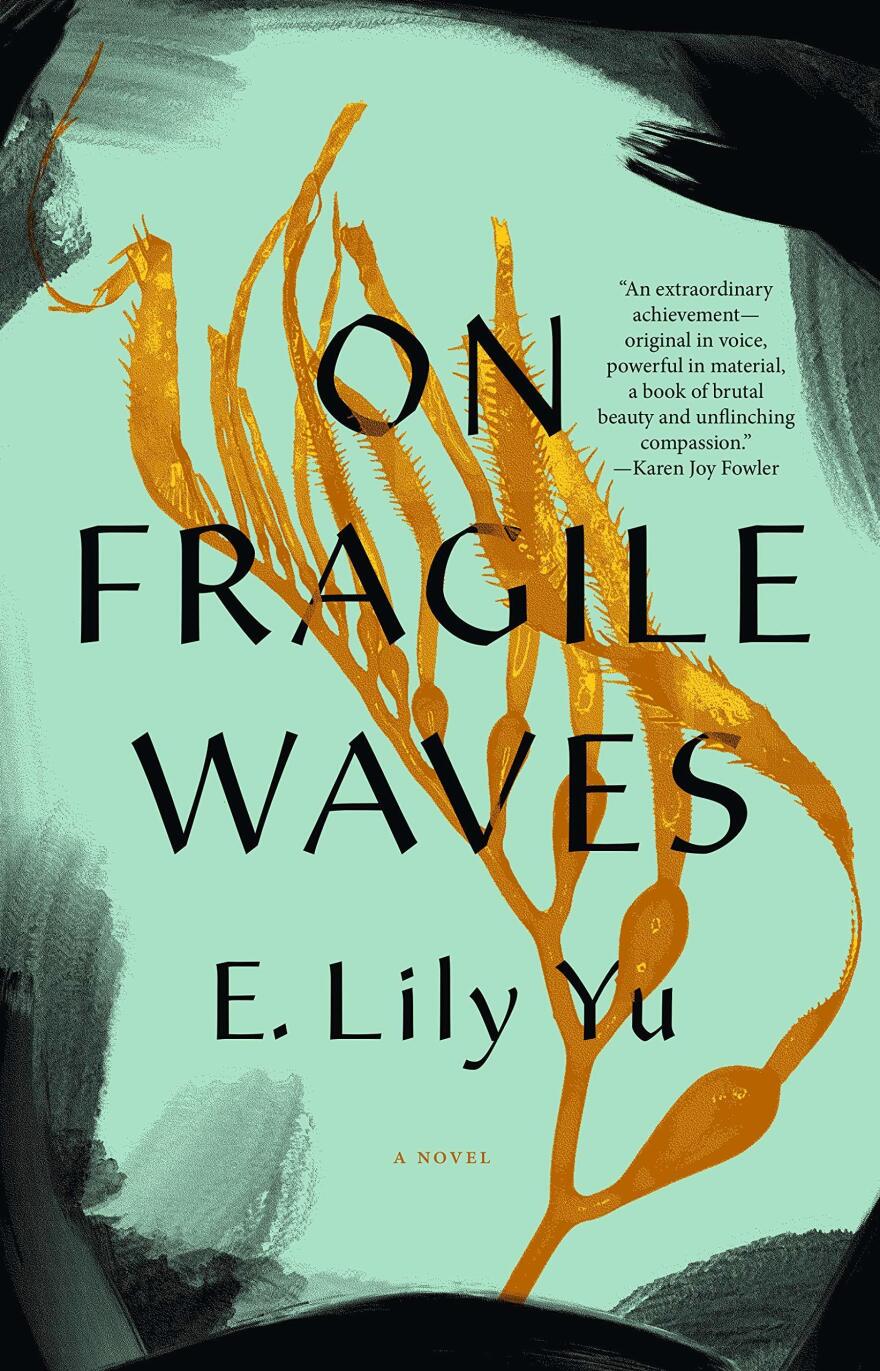
Every year, we ask our judges to add some of their own favorites to the list, and this year, Amal El-Mohtar teared up talking about her passion for E. Lily Yu's haunted refugee story On Fragile Waves. "I need everyone to read this book," she says. "I wept throughout it and for a solid half-hour once I had finished it, and I know it's hard to recommend books that make you cry right now, but I have no chill about this one: It is so important, it is so beautiful, and I feel like maybe if everyone read it the world would be a slightly less terrible place."
Will Make You Feel Good
The Goblin Emperor
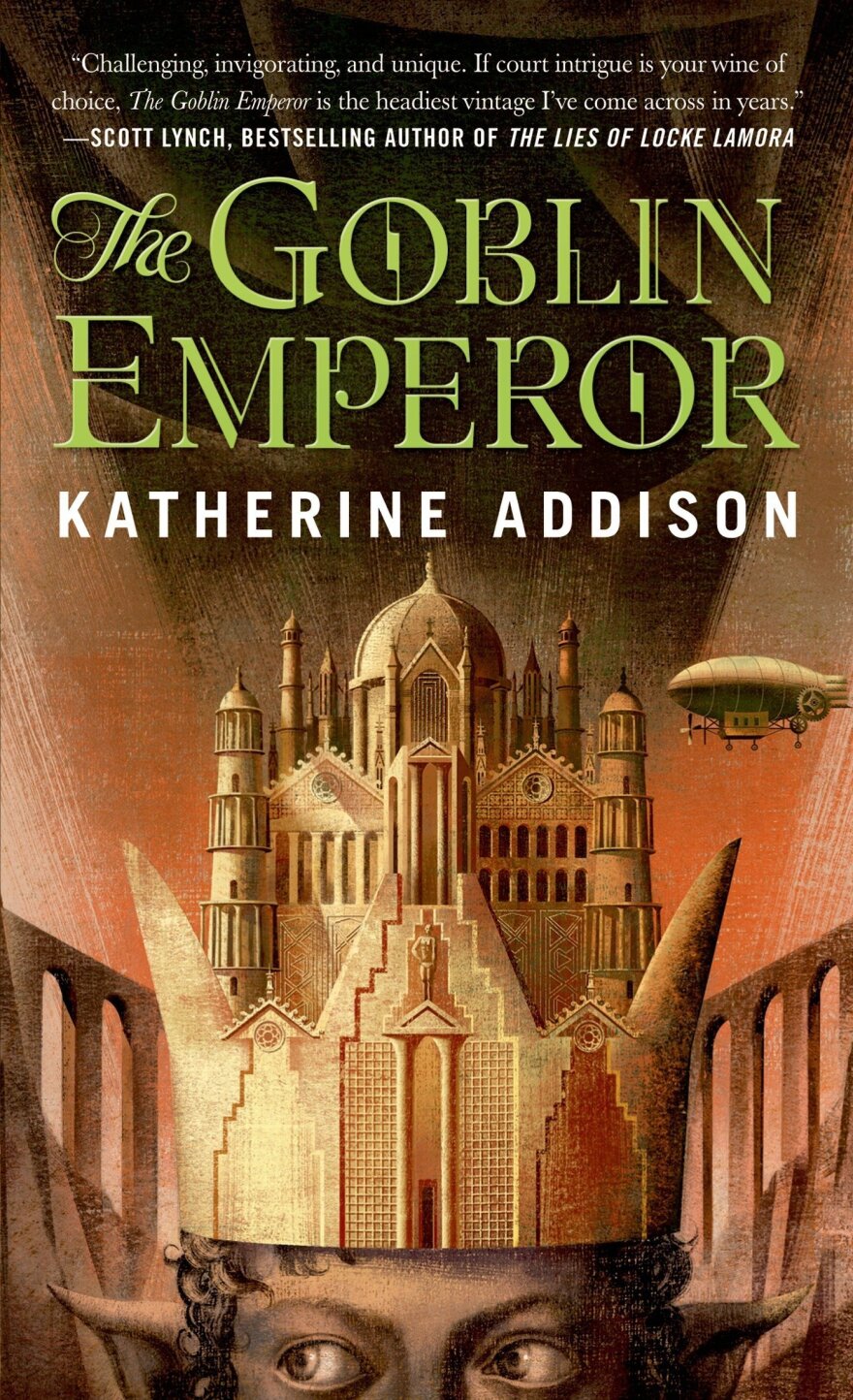
In a far corner of an elven empire, young half-goblin Maia learns that a mysterious accident has left him heir to the throne. But he has been in exile almost all his life — how can he possibly negotiate the intricate treacheries of the imperial court? Fairly well, as it turns out. Maia is a wonderful character, hesitant and shy at first, but deeply good and surprisingly adept at the whole being-an-emperor thing. The only thing wrong with The Goblin Emperor was that it was, for a long time, a stand-alone. But now there's a sequel, The Witness for the Dead — so if you love the world Katherine Addison has created, you've got a way back to it. "I just love this book utterly," says judge Amal El-Mohtar. "So warm, so kind, so generous."
Murderbot (series)

Oh Murderbot — we know you just want to be left alone to watch your shows, but we can't quit you. Martha Wells' series about a murderous security robot that's hacked its own governing module and become self-aware is expansive, action-packed, funny and deeply human. Also, your humble poll editor deeply wishes that someone would write a fic in which Murderbot meets Ancillary Justice's Breq and they swap tips about how to be human over tea (which Murderbot can't really drink).
The Interdependency (series)
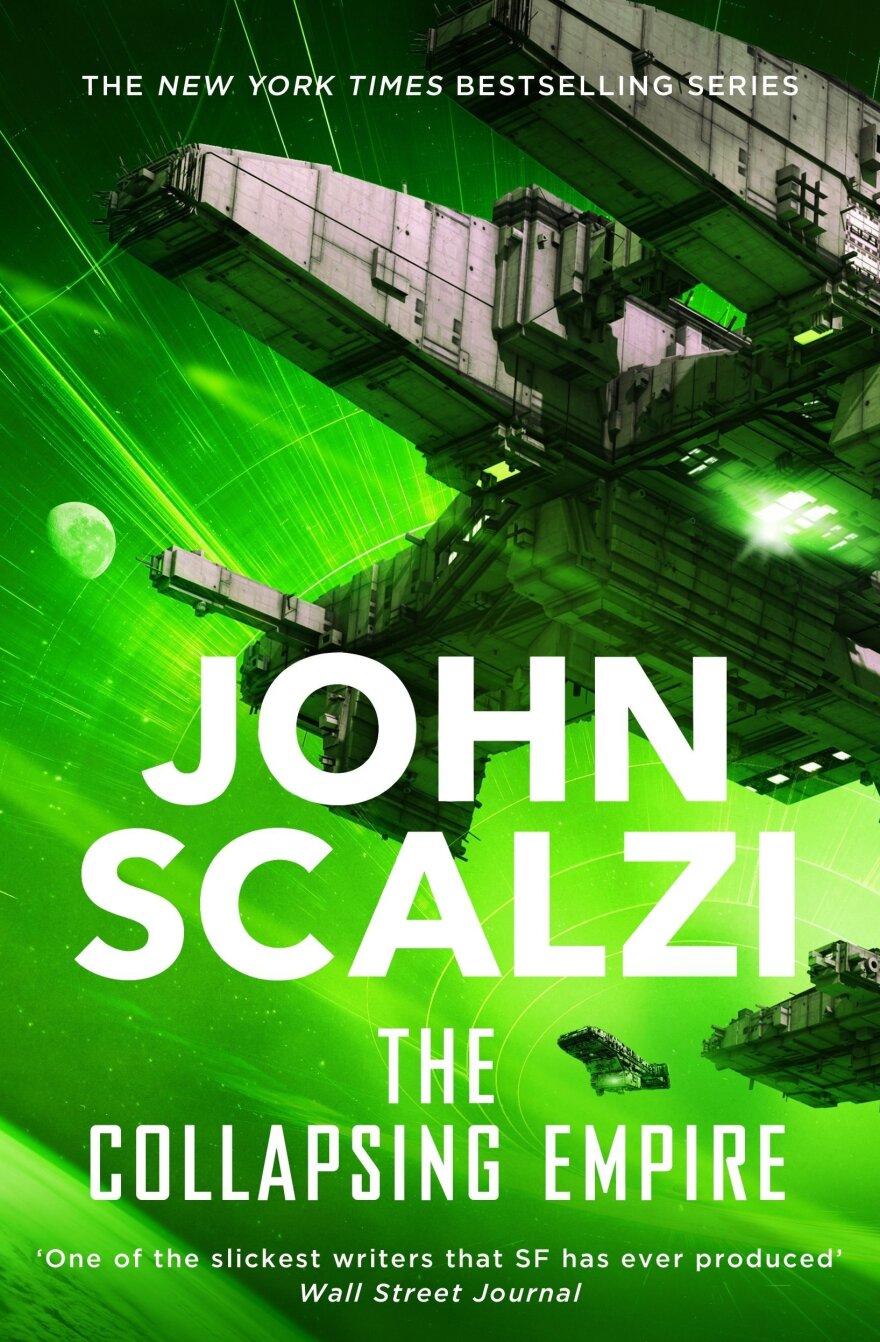
John Scalzi didn't mean to be quite so prescient when he started this trilogy about a galactic empire facing destruction as its interstellar routes collapse — a problem the empire knew about but ignored for all the same reasons we punt our problems today. "Some of that was completely unintentional," he told Scott Simon. "But some of it was. I live in the world." The Interdependency series is funny, heartfelt and ultimately hopeful, and packed with fantastic characters. To the reader who said they voted "because of Kiva Lagos," we say, us too.
The Martian
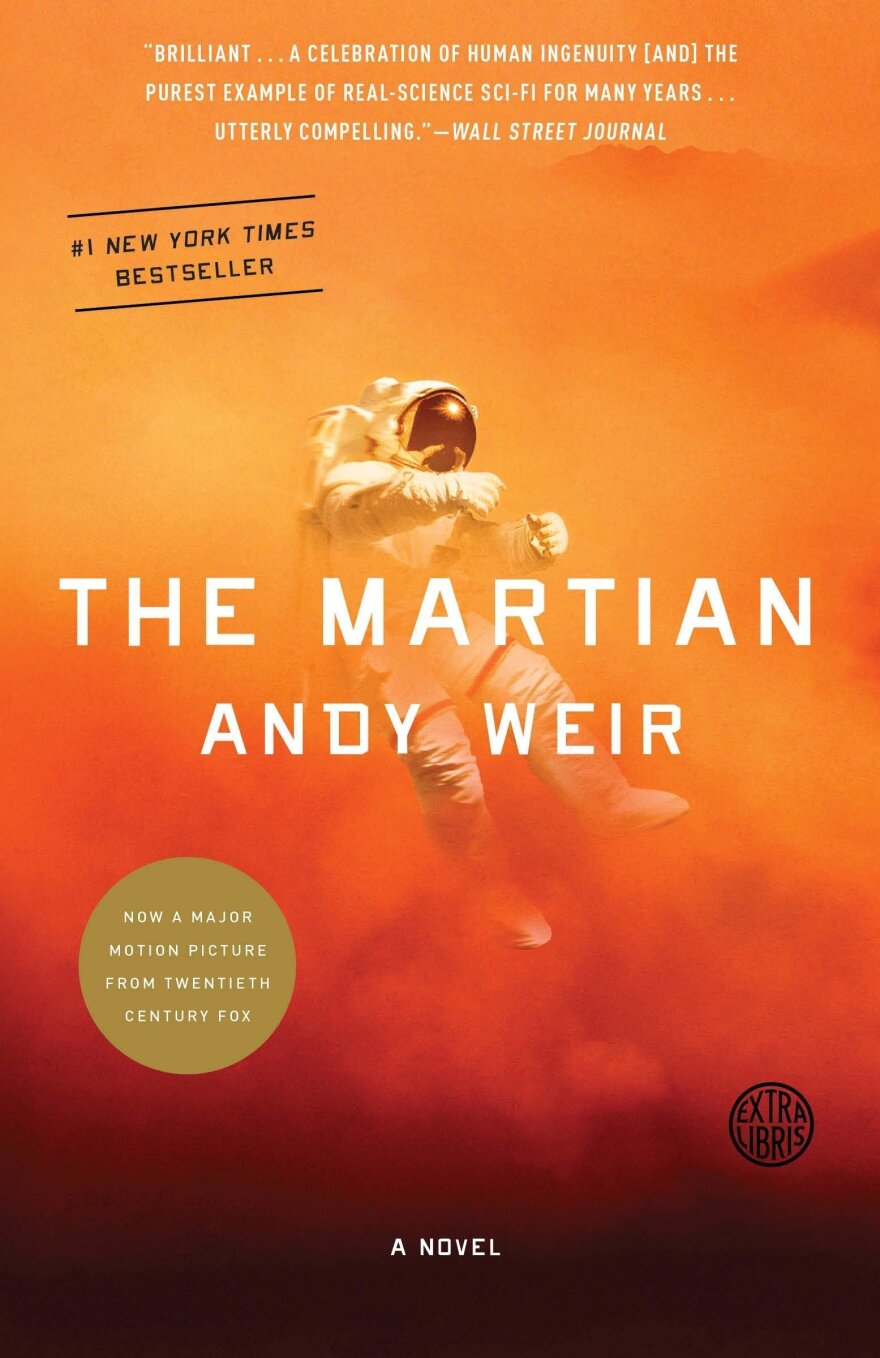
You don't expect a hard sci-fi novel to start with the phrase "I'm pretty much f****d," but it definitely sets the tone for Andy Weir's massive hit. Astronaut Mark Watney, stranded alone on Mars after an accident, is a profane and engaging narrator who'll let you know just how f****d he is and then just how he plans to science his way out of it. If you've only seen the movie, there's so much more to dig into in the book (including, well, that very first line).
Sorcerer to the Crown/The True Queen

A Regency romp with squabbling magicians, romance and intrigue, with women and people of color center stage? Yes, please! These two books form a wonderful balance. Sorcerer to the Crown is more whimsical and occasionally riotously funny despite its serious underlying themes. The True Queen builds out from there, looking at the characters and events of the first book with a different, more serious perspective. But both volumes are charming, thoughtful and thoroughly enjoyable.
How We Built This
Wow, you're some dedicated readers! Thanks for coming all the way down here to find out more. As I said above, we decided to limit ourselves to 50 books this year instead of our usual 100, which made winnowing down the list a particular challenge. As you may know, this poll isn't a straight-up popularity contest, though, if it were, the Broken Earth books would have crushed all comers — y'all have good taste! Instead, we take your votes (over 16,000 this year) and pare them down to about 250 semifinalists, and then during a truly epic conference call, our panel of expert judges goes through those titles, cuts some, adds some and hammers out a final curated list.
What Didn't Make It — And Why
As always, there were works readers loved and voted for that didn't make our final list of 50 — it's not a favorites list if you can't argue about it, right? Sometimes, we left things out because we felt like the authors were well known enough not to need our help (farewell, The Ocean at the End of the Lane, Neil Gaiman, we hope you'll forgive us!), but mostly it happened because the books either came out before our cutoff date or already appeared on the original 2011 list. (Sorry, Brandon Sanderson! The first Mistborn book was actually on this year's list, until I looked more closely and realized it was a repeat from 2011.)
Some books didn't make it this year because we're almost positive they'll come around next year — next year being the 10th anniversary of our original 2012 YA poll, when (spoiler alert!) we're planning a similar redo. So we say "not farewell, but fare forward, voyagers" to the likes of Raybearer, Children of Blood and Bone and the Grishaverse books; if they don't show up on next year's list I'll, I don't know, I'll eat my kefta.
And this year, because we had only 50 titles to play with, we did not apply the famous Nora Roberts rule, which allows particularly beloved and prolific authors onto the list twice. So as much as it pains me, there's only one Seanan McGuire entry here, and Max Gladstone appears alongside poll judge Amal El-Mohtar for This Is How You Lose the Time War but not on his own for the excellent Craft Sequence. Which — as we said above — you should ABSOLUTELY read.
One Final Note
Usually, readers will vote at least some works by members of our judging panel onto the list, and usually, we let the judges themselves decide whether or not to include them. But this year, I put my editorial foot down — all four judges made it to the semifinals, and had we not included them, the final product would have been the less for it. So you'll find all four on the list. And we hope you enjoy going through it as much as we enjoyed putting it together!
Copyright 2024 NPR. To see more, visit https://www.npr.org.


